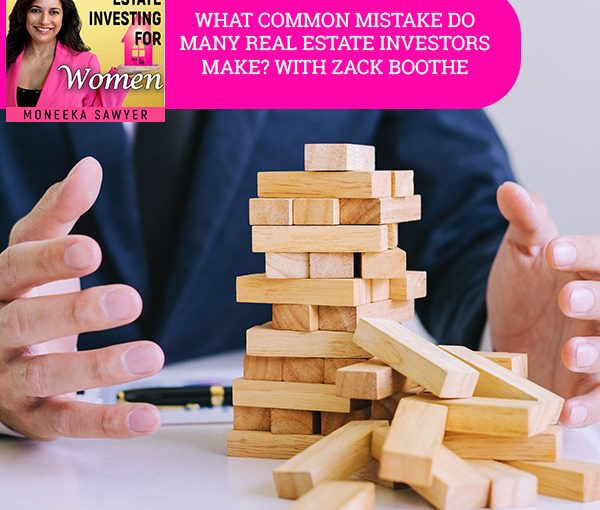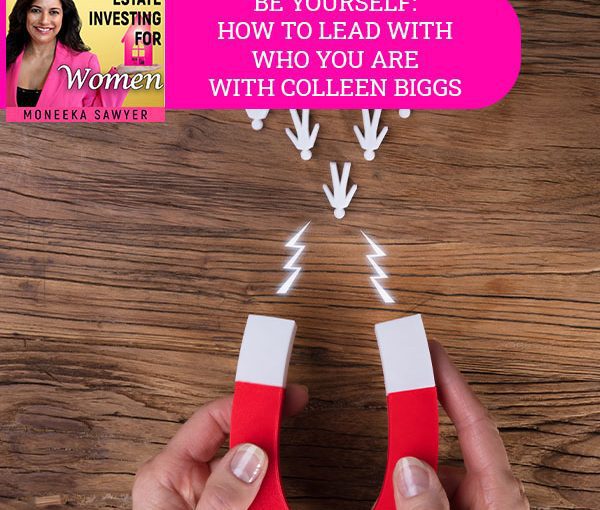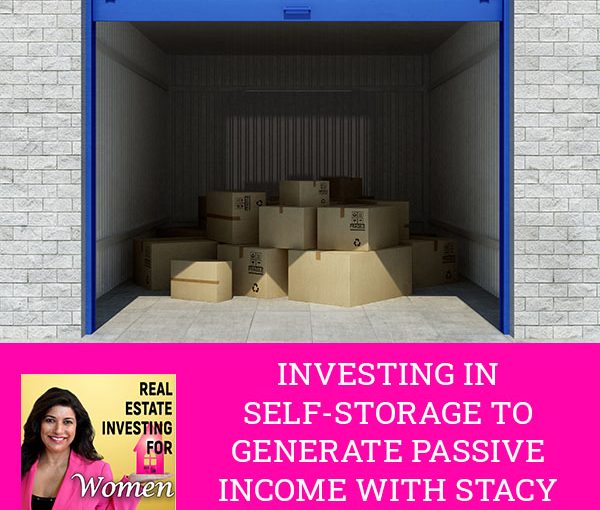What Common Mistake Do Many Real Estate Investors Make? With Zack Boothe – Real Estate For Women
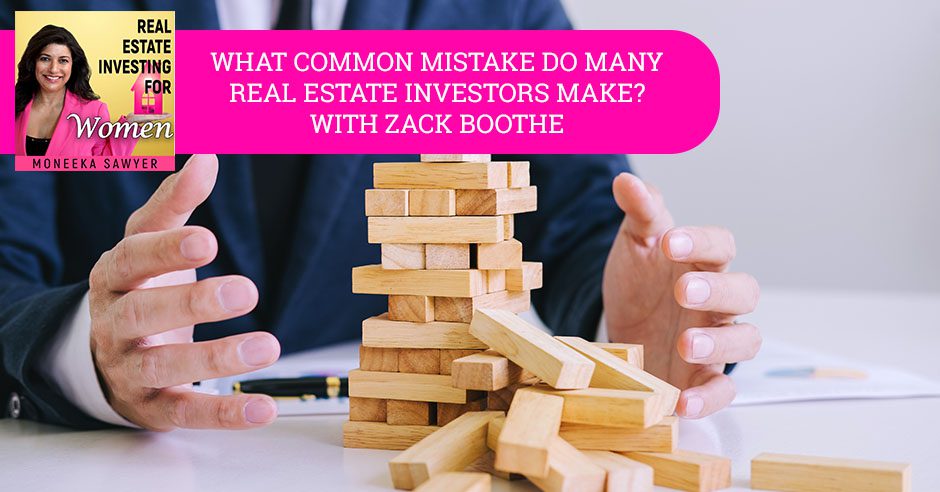
What is the most common mistake beginners in real estate make? They try to figure things out on their own. Moneeka Sawyer’s guest today is Zack Boothe, the founder of Driving For Dollars Mastery. Zack shares with Moneeka how listening to podcasts and watching YouTube videos won’t give you a clear path as coaching can. Find a mentor you connect with to help you find a path that works for you. It’s only when you have massive belief in what you’re doing that you succeed. Tune in and learn how to find the right mentor for you!
—
Watch the episode here
Listen to the podcast here
What Common Mistake Do Many Real Estate Investors Make? With Zack Boothe – Real Estate For Women
Real Estate Investing For Women
I am so excited to welcome to the show Zack Boothe. A few years ago, Zack was a window cleaner. You can even find his window cleaning tutorial videos on YouTube with millions of views. However, Zack always dreamt of being a real estate investor. Taking a leap of faith, he walked away from window cleaning. With a handful of years, he was making over $1 million per year from real estate investing. With his successful business, he now spends his time helping others see how simple it is to make money with real estate. Zack is here to share his insider secrets to finding massively discounted properties, regardless of your experience level. Zack, welcome to the show.
Thanks for having me. It’s good to be here.
I’m so glad that you’re able to make it. He told me before, Ladies, that he wasn’t feeling very well. I thought that this conversation was interesting. I didn’t want to put it off. We’re going to go ahead and go for it, Zack. I’m excited to have you here. Tell us a little bit more about your story, like the high-level two-minute version.
I was a window cleaner. It was good. I was providing for my family, but it wasn’t quite enough. It was a struggle. I wanted something different. I wanted to be able to provide a better life for my family. The day my son was born, I couldn’t help but be overwhelmed and stressed about how I was going to pay the medical bills. That pushed me to want to get into real estate investing. I did my first investment deal back in 2012. I bought a rental. It was a pre-foreclosure. My wife and I got dirty and cleaned it up ourselves and rented one side and lived in the other.
We had that experience and got the bug. We wanted to do more deals. We have so many roadblocks after that. Debt to income ratios, getting the loans, being self-employed, especially because I wasn’t making a lot of money as a window cleaner. I found out about real estate wholesaling. I got a mentor and it’s changed my life. Now I’m making six figures a month from this business. I have a team that does it for me. I do it in two different markets. I coach other people to do this, which is my passion and what I love doing. I create content. I have a podcast and YouTube channel around it. I love it. That’s the two-minute version of my journey and where I’m at.
Zack, how much time per week would you say that you spend on your business?
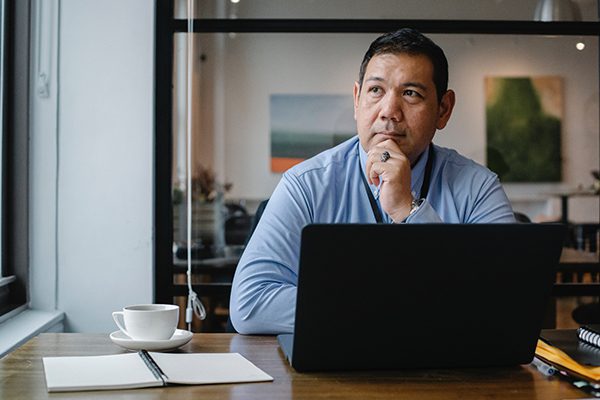
Real Estate Common Mistake: The biggest mistake people make is they try to figure things out on their own.
In coaching business, a lot. That’s where I spend all my time. If it’s a workweek and I work all week, 6, 7 days a week, it’s all day every day. As far as the wholesaling and investment business, I maybe spend four hours a week. I’ve been picking up about one property that I’m keeping for myself. I consider that my holding company. I’m spending a couple of hours a week on that business as well, but the wholesaling business that’s generating the majority of my money, I spend very little time at this point.
I look at what I do and people might be like, “That’s not true.” It is true, but where I spend my time is every Monday, I have a team meeting. I sit in on the Monday meeting. On Wednesdays, we do KPI reviews. What is that? I sit down with my two main people in my company, my marketing director and my lead acquisition manager. We sit down and look at our numbers. What our business did and where we’re at? Another thing, I’m going to lunch with a potential financial private money lender. Those are the kinds of things that I do. I meet with high-level people. I interview someone that’s going to be a project manager for a flip or whatever that might be, but I don’t spend much time in the business.
How long did it take you to get to this point where you’re only working about 4 to 6 hours a week?
I quit window cleaning and went full-time into real estate investing at the beginning of 2017. It’s not long. A few years ago, I transitioned out of the day-to-day. It took me about two years to build the company. The first year we did $118,000 in income. The second year, I did shy of $500,000. The next year we did $1.2 million, and that’s what I walked away from the business and put other people in place.
The cool thing is I cut a lot of expenses but also cut revenue and had some hiccups doing that. The next year, we only did $700,000, but my profit margins were better. In May 2021, we’re at $700,000 already. We’re fully expecting to have our best year ever because I increased our ad spend by 25%. We should end 2021 between $1.5 million and $2 million in sales with a 40% profit margin.
Ladies, this is why I’m having this conversation. The conversations that I’m most interested in, and I know so many of you ladies are interested in, is you’re successful, and this is what you’re doing right now, but how did you get here? I only worked 5 to 10 hours a month, and people were like, “Was it always this way?” No, there’s a ramp-up time. When you start your business, what is it that you’re doing to make that happen? For me, I’ve always worked those hours, but my business was a side hustle. I wasn’t paying attention to it.
I’ll admit openly that I probably would have reached wealth much faster if I had paid more attention. I loved this conversation with other successful real estate entrepreneurs to find out what the ramp-up looks like and where they’re at. That’s why I wanted to ask these questions, Zack. One of the pieces that I wanted to ask you is, in the first three years, how much time do you feel like you were spending in that business? Was it part-time, partial time, more than part-time? What did that look like?
It’s overtime hours. I still work more hours than most people, but I believe that this life is not made for sipping piña coladas on a beach. I believe that we find fulfillment in life by challenging ourselves and growing. Once I started finding success in real estate, I happened upon coaching. It wasn’t even planned. I started finding fulfillment helping other people find success. My mentor said something that stuck with me. He said, “When you win in the game of money, there’s no joy in running up the score.”
We find fulfillment in life by challenging ourselves and growing. Share on XPeople say all the time, as wealthy people, even though, “Money’s not important.” Someone hears that, and they go, “Yeah, because you already have money,” but they’re both right. There’s a certain amount of money that is very important. You’ve got to provide for your family. You’ve got to eat. There is a certain level of money once you hit that. More doesn’t equal that same level of comfort and peace. I started having a massive amount of financial success after hustling for two years, and I wanted something different.
I’m going off on a tangent here to answer your question. I worked very hard in my wholesaling business in those first two years. I walked away from my window cleaning business. I had two months until I was not going to be able to pay the mortgage. I hadn’t done a wholesale deal. I hired a mentor and I was going to do it. I know it’s a little crazy for most people. I had to put my coaching fees on a credit card. A lot of my marketing is on a credit card. I was going to make it happen.
I was working until 10:00, 11:00 every single night, seven days a week, until I did my first deal. I did my first deal. It was $10,000 and it was amazing. My biggest deal that first eight months was $30,000. That was the $100,000 that I made in that first year, the first eight months of wholesaling. I kept working my butt off. My mentor also said something that stuck with me. He said, “Hustle is a season, not a way of life.”
I feel like I hustled to work hard, but then it got to the point where I started working a little more strategically to build out the team. To get to that level of success, you have to start somewhere. Where do you start? Your goal is to get your first deal, your second deal, and then your third deal. It evolves from there. Don’t overcomplicate it. Don’t look at someone that’s had levels of success and has a team and says, “I only work five hours a week.” I was like, “How’s that possible?” They work their butts off in the beginning.
You and I have a little bit of a different point of view, but I love that each of us has how we define bliss and then that’s what we work for in our life. That’s what gives us fulfillment. Could you tell us the mistake that you see beginners make in real estate investing, the biggest mistake, the most common one?
The biggest mistake that people make is they try and figure it out on their own. They listened to a podcast. They watch a YouTube video and then they watch another podcast. They take some action steps, but it’s unorganized. It’s not clear. They don’t know exactly if it’s going to work. When they’re doing those action steps, they’re not super confident in them. One of the guys that I follow that I love, Tony Robbins. He talks about the cycle of success that people have.
To be able to tap into our full potential as people, we have to have a massive belief in whatever we’re doing. If we start wanting to do a wholesale deal and we watch a YouTube video and be like, “They said to go buy a list from PropStream and to send postcards. I’m going to try that.” You go do it. You’re not sure if it’s going to work. You’re not going to give a massive amount of effort. For example, you’re not going to drop $7,000 on postcards. You don’t have a massive belief.
If you know for a fact that if you spent $5,000 to $7,000 on postcards, you’re going to make $30,000. Would you do it? Yes, because you have a massive belief in it. What happens is if you have a belief, you’ll give massive action. If you give massive action, you’ll have massive results. You’re going to build your confidence. If you’re going to do another deal and another deal, and you’re going to grow, do more deals and add more marketing strategies or whatever that might be.
The problem is people don’t go at it with confidence because they’re going at it alone. They’re trying to figure it out from just a podcast. That’s why it was so important to get a mentor. That’s why I got a mentor in the beginning. I would not be successful without my mentor. Tom Krol was my mentor. He doesn’t coach anymore. I love him to death. He changed my life, got me out of window cleaning and into this business.

Real Estate Common Mistake: Driving for dollars is a simple strategy to find discounted properties.
He’s out of Florida, but he gave me the action steps. There was no confusion of like, “What do I do next? If I do this, will it perform?” He said, “Zack, go do this and this.” I went and did it. I’m like, “Done, now what?” He said, “Do this and this.” I went and did it. I did it in mass. I took very uncomfortable steps, but he told me to do them. I knew that he was successful.
If I did what he did, I’d be successful. That’s how I had success. I feel like that’s the number one issue. People put a toe in instead of jumping in, but the problem is they don’t get a mentor. That’s jumping in. It was like getting a mentor that gives them the step-by-step action steps so they can implement them and do them. I also believe there are bad mentors.
I do, too. Yes, thank you for addressing that.
I’m not going to pay anybody, but I believe getting a mentor that’s going to get you there is very important.
How do you pick a mentor? What would you recommend?
There’s a handful of things that I would suggest. Some people might be hearing this and going, “You’re saying that because you are a mentor,” yes, but I’m not going to coach everyone that wants a coach. Find your mentor, first of all, that you connect with. Someone might have already heard some of the things I said and completely don’t vibe with me. First of all, don’t even think about working with me. Find someone that’s a mentor that you vibe with.
The type of person that you have, and also are living the types of lives, have the same core values, same core beliefs. They’re your port people. They would be your best friend in different circumstances. That’s the first thing I would look at. The second is that they are doing what you’re trying to accomplish. Don’t hire mentors that only teach but don’t do what they say. If you want to get into wholesaling, make sure they also wholesale and coach, not just coach.
Hustle is a season, not a way of life. Share on XThe next thing I would look at is do they have successful students. It’s one thing to say, “Yeah, I know how to do it.” It’s a whole another thing. I promise. Coaching and doing wholesaling are two different things. If that coach hasn’t been able to help lots of people become successful and you can’t talk to those successful students and have those successful students say, “Yes, that person changed my life.” Just like I talked about Tom Krol. If their students aren’t saying those kinds of things, don’t join the program. That would be my advice, those three things.
Thank you for that. I do get a lot of people who call me and they’re like, “Moneeka, you talk about getting a mentor. How should I get a mentor?” That’s great advice. Thank you for that. What would you say is the best strategy for finding deeply discounted properties? That’s what you do?
That’s what all of the real estate investing is. It’s finding discounted properties. I was reading a book called Multi-Family Millions, but it’s talking about doing giant multifamily deals, million-dollar projects. He said something that clicked. This was at the beginning of my real estate journey. He said that, “Real estate investing is marketing. Our product is real estate. If you can’t get that between your two ears, you won’t be in business for long.”
He has a couple of sections in there. We talked about how you find discounted properties. It doesn’t matter if you’re wholesaling or giant properties. Our business is marketing. We have to find discounted properties to do deals on. There’s the cliche saying, “You’ve got to buy low to sell high.” You have to start with a good deal. It doesn’t matter if you want a wholesale, buy and hold, flip, syndications, whatever it might be.
One of the things that I do and everything that I do is branded Driving For Dollars Mastery or DFD Mastery. My website is DrivingForDollarsMastery.com. Driving For Dollars is a strategy that I use to find discounted properties. It’s simple. You drive around neighborhoods and find the ugly properties, the ugly multifamily houses and single-family houses. You add it to a list. You find out who owns it, and then you see if they want to sell. That’s simple.
Obviously, there are things to be more efficient to do on a larger scale and to be able to be very profitable. I truly believe that is the best way to find off-market discounted properties. There are lots of ways, though. There are banded signs, radio, online marketing. There are lots of different things, but I truly believe that is by far the best, most profitable, and fastest way to deals.
Zack, where are you located?
I’m in Utah.
It’s a hot market there, too. It’s a hot market everywhere.
It is everywhere. I also live in Tampa. I do it in two different markets.
Talk to me a little bit about how you do this in a hot market. I live in San Jose, California. If someone wants to sell, if you send them a letter and you say, “Do you want to sell?” They’re very aware of what their property would be worth if they put it on the market, even if it was as-is. It’s hard in this area to get a discounted property because people can put it on, and bids will come in. Everything’s going for multiple offers. Things are going for several hundred thousand dollars over asking. Finding a discounted property is difficult in my experience. What would you say to that? What do you recommend?
It’s very important to understand that you have to be a deal finder, not necessarily a deal creator. Many people think that you have to be this swindler or dishonest, or shady to get discounted properties because everyone knows or understands that it’s a hot market and they can get a lot. What you need to understand is some people want convenience over the price. For example, we are real estate investors, wholesalers. We’re pawnshops for houses.
That’s the best explanation I can give. For example, if someone takes a piece of jewelry out of their house and they go, “I don’t want this piece of jewelry anymore. I want cash.” They could list it online. Put it on KSL, Craigslist, whatever online resources, eBay, and try and get as much as possible. You could drive down to the corner store and say, “Here’s my ring. Give me cash.” You’re going to make less at the pawnshop, but there’s a convenience factor, pawn shops to make money.
There are only a select few people that want to sell stuff at a pawnshop. There are people that and you might think that doesn’t exist, especially in a hot market. That’s not true at all. It’s not true because I’ve made $700,000 in five months doing this. It works. The funny thing is I have the same conversation with my neighbor, my cousin that calls me and says, “I need to sell my house. Will you buy it?” I say, “You might make more money listing it with an agent. Why don’t you do that?”
“I’m an investor. I can have it done quickly, but I might not be able to be your best offer.” They say, “Yeah, I’m not in a hurry. I’ll probably list it and fix it up myself.” It’s like, “Okay, best of luck. I can’t help you.” They say, “Yeah, I don’t necessarily care about getting out the money. I don’t want to fix it up. I don’t want to deal with an agent. I want to be done.” When they say that, that means it’s a deal. They want a pawnshop for a house. The biggest thing is you put out a net to the ugly houses in your neighborhood and ask them if they want to sell. You have that exact conversation.
Why don’t you listen, it sounds like it’s a decent property? It might need a little work. Why don’t you fix it up and list it? If they tell you, “No, I don’t want to,” then it’s a deal. I’ve captured those conversations. They’re on my YouTube channel. I straight up say, “You will make more money, listing it with an agent. Why don’t you do that?” They say, “I don’t care. I want it gone.” That’s who we’re trying to find. Are there very few people that want to sell their houses for speed and convenience? Yes. That’s why it’s so important to do marketing and to have a strategy to find off-market discounted properties.
Zack, I’ve never heard that analogy. Thank you.
You’re welcome. I stole that from Tom Krol as well. I’m not lying when I say, “Get a mentor. He changed my life.” I’m changing people’s lives by helping them. It’s going to snowball. There are going to be 2 or 3 people that I changed their life. They’re going to change more people’s lives. That’s fulfillment to me. I can go to the grave with all this money. It’s not going to make a difference, but what will make a difference is this content that we leave behind, the YouTube videos, the things that we talk about, the people that we helped. I will always have nothing but love and respect for Tom because of the action steps and the things that he did for me and the things that he gave me. I want to pass that on.
You talk a little bit about having different exit strategies. This is a hot topic for me that I talk about quite a lot. Could you talk a little bit about how you decide on your exit strategies to make the most money when you get a property?

Real Estate Common Mistake: Wholesaling is amazing because there’s no getting stuck with the deal.
When I first started, everything was wholesaling. I find a deal and a buyer that wanted to buy my contract and close on it. I didn’t have the money. I didn’t have the ability to do anything else. I was broke. I didn’t have debt to income. I didn’t have credit. I didn’t have private money investors. I didn’t have all those relationships I do now. What I do is we put together the deal. I don’t sign any of the contracts anymore, but the deals are presented to me. We’ll blast an email out to all of our cash buyers. We do a full inspection on the property.
Our agent goes to the real estate inspection. Our project manager goes to the inspection and all of our cash buyers. We get all of our cash offers in. We take the highest and best is what we tell our cash buyers. There’s no telling what our offers are and those kinds of things. I just want to get offers in. I don’t want to play the game of, “Tell me where I need to be. People are waiting to give me offers because they want to be last,” all that garbage.
I can assign it and say, “I’m going to sign a deal for $30,000. I can assign it for $30,000, or I can close on it with my cash. Keep it as a rental and refinance myself out or hard money and refinance myself out.” I evaluated it as a rental. I also have my project manager rough give me the numbers and present the Excel spreadsheet where we’ll be if we flipped it.
That’s why I have my agent there. What we could sell it for fixed up, what needs to be done as far as remodeled to get it there. The bids put together for that. I get to choose, “Do I keep it as a rental? Do I flip it? Do I wholesale it? Do I close on it and list it?” I have whatever strategy that I want to approach. During the acquisitions portion, we’re also talking to the seller. See if seller finance is taking over the mortgage is an option or if the cash offer is all they want. Depending on what they get it under contract for, then we’ll evaluate the deal from there.
I usually have three exit strategies, so it’s nice to see that you’ve got four. Ladies, this is an important thing to keep in mind. Zack, in the beginning, had to do it one way. Even me, I started in construction. This is the worst time on the planet to be in construction. Even when I got in, I had three exit strategies planned out. It wasn’t like I have to build this thing and sell it, or I’m going to die or go bankrupt or lose everything.
Even in the beginning, for me, if I get stuck with something, I know what I’m going to do with that. When you’re starting, even if it’s a wholesale thing, you had to make money. If you did end up getting stuck with a property, you would have a strategy to get out of that. Think through when you’re putting together your strategies, what could plan B be if things go bad? Wouldn’t you agree with me on that?
Find the mentor you connect with. Share on XYes. I also believe that’s the power of wholesaling. Why wholesaling is so amazing is there no risk. There is no getting stuck with the deal. That’s why I started with wholesaling because I saw it as a way to build a rental portfolio. I saw it as a way to build well because not only could I start my marketing and start finding off-market discounted deals there, step one, write good deals, but then I could get cash for them and not have to take any risk. As I built up more cash, then I can take that cash and maybe flip one and make a little bit more on the deal than just assigning it. The thing is, my average assignment deal in Utah is $30,000. In Florida, that’s $18,000 a deal. My profit margins are 40%.
That’s a lot of money. It’s a chunk of change. Eventually, getting into holding properties or flipping and taking those risks and having those other strategies is great. There’s nothing wrong with starting off at first with having wholesaling because if you do it right, we’ll have it under contract. In your contract, you’ll have a timeframe to inspect the property and to try and find a buyer for your purchase contract. If you can’t find a buyer within that time, you can cancel that agreement. You don’t put properties under contract. You don’t think that you can find a buyer for it. That’s the beauty of wholesaling. It’s a great place to start, and it’s way less risk-taking debt to flip a house.
Thank you for all that. Zack, tell everybody how they can reach you.
The best place to find me is my website, it’s DFDMastery.com. DFD stands for Driving For Dollars.
I know you don’t have a specific gift for people. I know that you’ve got a lot of content that you wanted to share with my audience. Tell us a little bit more about that.
I worked hard to help and to give back the content I create. I went down to Florida and the goal was to take $1,000 in a whole new market and turn it into $40,000 in 40 days. I opened up Florida. I’ve said, “I do deals in Florida. This is how it all started.” I flew to Florida. I had 40 days to make $40,000. I documented it all and had a film crew there and shared it for free on my YouTube channel. You guys can go see what it takes to get started in wholesaling with a very small budget and to see what kind of work that includes. You see the ups and downs.
I share the deals that fall apart. I share the frustrations, the exhaustion because it’s every day I share an episode. You get to see the entire process. It’s totally worth watching. We ended up with seven contracts. Two of them fell apart. We closed on the other five. Two of them, I kept as rentals with $100,000 in equity in both of them. Three of them, I ended up wholesaling. I sold the purchase contract. We made $93,000 on those three deals. Since I did everything myself, that’s pretty much all profits. It was a chunk of change. I don’t know very many people that could make $100,000 in a month. It’s not because they’re not smart enough or don’t have the work ethic.
They don’t know how. The whole point of that challenge is not to show off or anything, but it’s to show you guys that you guys can do it. I don’t feel like I’m anything special. I was a window cleaner. I didn’t go to college. I didn’t come from money. I had a good work ethic. You should see my spelling, it’s bad. I’m saying that I did that whole challenge to encourage you guys and to show you what’s possible. I don’t want to sugarcoat any of it, it’s hard. It’s a lot of hard work. The process is simple, but it’s not easy. That was the whole point of the challenge to show what it took to be a wholesaler and how to get started and what that initial hustle looks like.
Zack, that’s so generous that you did that. How do people find it on YouTube? What should they be looking for?
If you go to YouTube and search DFD Mastery. My YouTube channel is DFD Mastery. Everything I have is branded DFD Mastery, which stands for Driving For Dollars Mastery. You can find my YouTube channel. There’s a ton of awesome content in there. I’ve been producing three videos a week. We’re going to bump it up to four episodes a week. It’s a lot.
Ladies, go check that out. Thank you for that. Are you ready for the three Rapid-fire questions? Tell us one super tip on getting started investing in real estate.
Get a mentor, find a mentor.
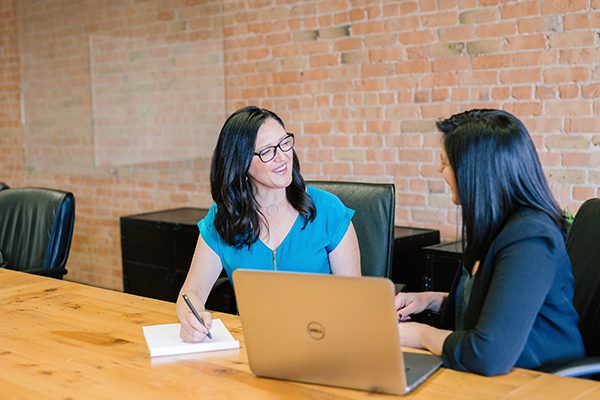
Real Estate Common Mistake: The whole point of the challenge is not to show off but to show you guys that you can do it.
What’s the strategy for being successful in real estate investing?
I believe that the most important thing is getting good at finding off-market discounted properties. If you can get good solid leads of people that want to pawnshop for their house, you will be successful. I believe that is a portion of investing, in general, is good deals.
What is one daily practice that you do that you would say contributes to your personal success?
I have a giant list of tasks. There is never a day that I don’t have a list that I can’t get to. I have a big list and what I do is I pick what’s going to move the needle towards my goals the most. I have a very clear direction, a 3-year goal, 1-year goal, and a 1-month goal outlined at all times. When I’m looking at my tasks and everything that I have to do, I pick what it is that I do it. Most people do the opposite. They do what sounds comfortable, like checking their emails. They skip the uncomfortable stuff, like cold calling to get a lead. I’ll even archive my entire email because I got 50 emails and it annoys me. I archive it all. I’m like, “If it’s important, they’ll call me.”
I get 3,000 emails a day. It’s funny.
My team will call me like, “Did you get my email?” I was like, “You know me. No.”
“Do you want to talk, give me a call?” I’m not that person, but that’s an interesting way to handle that.
I believe that’s a huge thing that I do is attack and it’s usually always the uncomfortable things. I believe what’s going to move the needle is what makes us uncomfortable. That’s why most people don’t ever move the needle in their lives is they’re like, “This is my giant task.” They’re like, “I’m working hard,” and it’s like, “Are you?” You’re not because you’re busy, but you’re not working on the right things. You know you’re not. You’re lying to yourself to make yourself feel proud of yourself when you know you’re not working on those hard things.
There is a difference between busy work and productivity, very definitively. Thank you for that. This has been amazing. I’m so excited. Thank you for all you’ve shared on this portion of the show, Zack.
You’re welcome. Thanks for having me. It’s fun.
You change people's lives by helping them. Share on XLadies, thank you for joining Zack and me for this portion of the show. If you are subscribed to EXTRA, we do have stuff for EXTRA, but I have to clear something with Zack first. I have a special topic I want to talk to him about, but I need a yes from him. I’m going to tease you guys this time and not tell you what we’re talking about, but do take a look at RealEstateInvestingForWomenExtra.com. You get your first seven days for free. Check it out.
For those of you that are leaving us now, thank you so much for joining Zack and me for this portion of the show. I love having you here. I look forward to seeing you next time and until then, remember, goals without action are just dreams. Get out there, take action, and create the life your heart deeply desires. I’ll see you soon. Bye.
Important Links
About Zack Boothe
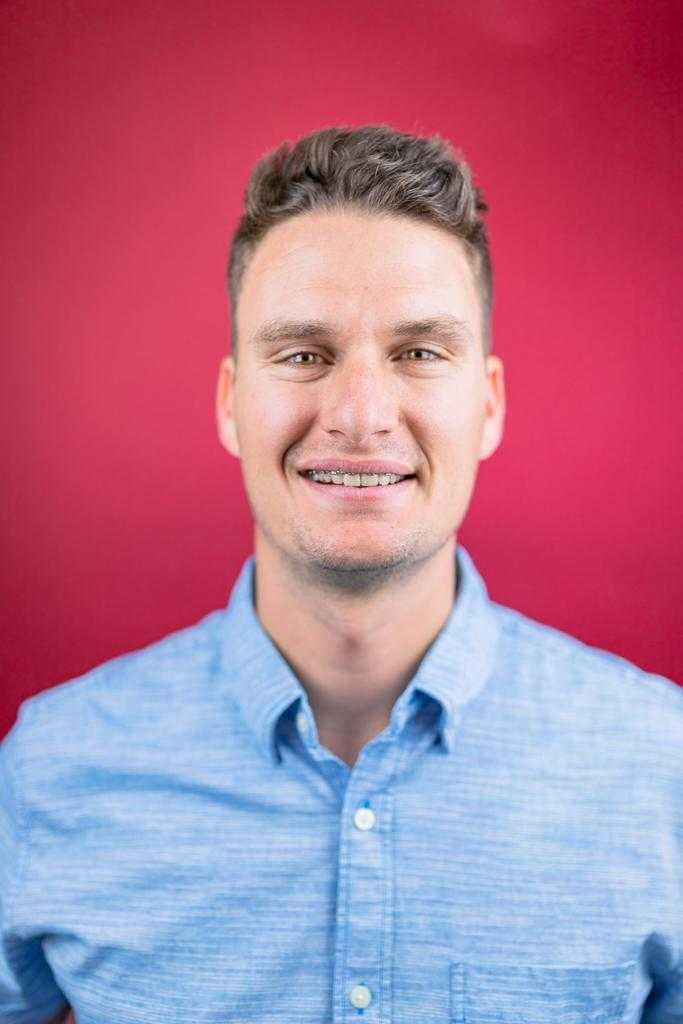
Man, I remember what it was like when I first got started in real estate. I’d wake up every morning full of confidence and courage, ready to attack the day. I had a focused plan and I knew exactly how to find smoking hot real estate deals, and quickly turn those deals for huge profits.
Quite the opposite. In fact my reality was fear, doubt, overwhelm, and frustration. I worked my butt off but I was drowning in bad advice from gurus, and strategies that either didn’t work or just weren’t congruent with who I am.
Five years later and I’ve done over 300 real estate deals and have generated millions. Over the years I’ve made a lot of mistakes and have learned a lot of lessons (sometimes the hard way), and I’ve built a dream real estate business…and I’d love to show you how you can too.
Love the show? Subscribe, rate, review, and share!
______________________________________
To listen to the EXTRA portion of this show go to RealEstateInvestingForWomenExtra.com
To see this program in video:
Search on Roku for Real Estate Investing 4 Women or go to this link: https://blissfulinvestor.com/biroku
On YouTube go to Real Estate Investing for Women
Moneeka Sawyer is often described as one of the most blissful people you will ever meet. She has been investing in Real Estate for over 20 years, so has been through all the different cycles of the market. Still, she has turned $10,000 into over $5,000,000, working only 5-10 hours per MONTH with very little stress.
While building her multi-million dollar business, she has traveled to over 55 countries, dances every single day, supports causes that are important to her, and spends lots of time with her husband of over 20 years.
She is the international best-selling author of the multiple award-winning books “Choose Bliss: The Power and Practice of Joy and Contentment” and “Real Estate Investing for Women: Expert Conversations to Increase Wealth and Happiness the Blissful Way.”
Moneeka has been featured on stages including Carnegie Hall and Nasdaq, radio, podcasts such as Achieve Your Goals with Hal Elrod, and TV stations including ABC, CBS, FOX, and the CW, impacting over 150 million people.
Be The Queen Of Your Own Life With Harriet Morris – Real Estate Women

Are you a princess or do you want to be the queen? Do you crave outside affirmation, or are you confident in what you are and what you can do? In this episode, Moneeka Sawyer sits down for a talk with eating psychologist and body confidence coach Harriet Morris. Harriet discusses the different archetypes people fill, and zeroes in on two: The princess and the queen. We learn the differences between both and why we need to unleash the queen inside. Tune in and learn more on becoming the queen you were meant to be.
—
Watch the episode here
Listen to the podcast here
Be The Queen Of Your Own Life With Harriet Morris – Real Estate Women
Real Estate Investing For Women
I am excited to welcome you to the show, Harriet Morris. She is a coach and host of two podcasts, The Rebel Queen Empath and The Eating Coach. She’s almost a total failure as an employee and a miserable binge eater until the age of 40. It was at this age that she discovered her secret superpower. This is the ability to turn failure and self-sabotage on their heads through curiosity and experimentation. She has used her superpower to reclaim her life from compulsive eating, doubled her income in a year, and get over 200,000 podcast downloads. That’s impressive because if you know anything about podcasting, 20,000 in five years is fairly standard. Two hundred thousand downloads are amazing. She appears on shows like Entrepreneurs on Fire, which I have been on also. Her mission is to help women in midlife step into the role of queen, which means owning their power, dismantling their fear of success, and embracing their own imperfections. Ladies, you can tell why I wanted her on the show. Hello, Harriet. Welcome to the show.
Instead of waiting for life to present an opportunity to you, life's going to say, “Well, no, you've got to do some work first.” Share on XMoneeka, thank you so much for having me.
Harriet, tell us a little bit about your story. The two-minute high-level version.
In my first career in teaching, I was no good. It was pretty bad. It was an adventure failure. Many people come on podcasts and they go, “I was a corporate bigwig,” and then I changed a bit, “No, I was a complete failure.” I then had kids and decided that I wouldn’t do teaching anymore so I did a variety of online adventures. When I turned 40, everything changed for me. I realized that I wasn’t going to live forever. I wanted to be free of the compulsive eating that I’d have for years and years. I released myself from compulsion by experiments.
There’s this one time I remember, and it was from giving up sugar. I’d given up sugar for about six weeks. I had done it through experimentation when no other gurus could help me. What happened was, I was standing in the supermarket and I was right in front of all the chocolate. I thought, “I’ve had enough of all this that I’ve done.” That food rebel was back and I’m going to have the junk. My hand reached that and said, “Which bar shall I have?” As that happened, the most bizarre thing took place, which was my feet turned to walk in the other direction.

Be The Queen: The difference between the princess and the queen is that the princess is full of self-doubt, and she wants affirmation from the outside. The queen sits on the throne. She doesn’t need that outside affirmation.
We’re generally attached to our feet. I was like, “What was going on?” What was going on, in a nutshell, was that I had trained my subconscious over six weeks through experimentation to take a different action when I got a craving. It was a distraction action. Even though that day, I said, “I’m not doing any of these distractions,” my subconscious noted that I was stopping and it decided that we were going to walk away anyway.
I was annoyed because I wanted the junk. At the same time, I was like, “Wow.” From then, a couple of years later, I started coaching people with binge eating. It all went from there and I started my podcast. It was all these things that I was scared to do. I had no self-belief when I gave up all the junk. I had no self-belief when I started coaching and podcasting. I did everything as an experiment. That is the message I want to give people. You do not need to have belief in yourself. You just need to be curious.
I love that story about how it’s like a magic wand. Your feet had a life of their own right. Ladies, I know that normally, I don’t have people that talk about eating on the show. Part of what engaged me with Harriet was, first of all, she’s delightful so I wanted to share her with you, ladies. I say this on the show all the time, how we do anything is how we do everything. If we have compulsive behaviors, they are going to show up in different ways. Sometimes it can be a good thing.
My husband is compulsive and how that shows up is he gives me a lot of attention. He’s compulsive about me. There are good things about compulsions but a lot of times it shows up in a bad way. For instance, a compulsion to be lazy, procrastinate and self-sabotage. There are a lot of things that we do compulsively that show up in a bad way. If we have tools to adjust our compulsions, even if we’re talking about an eating disorder, now I can use them in making telephone calls, talking to my clients and tenants. It’s all of these things that we do in our lives. Now we’ve got a tool to adjust all that.
It's good to do affirmations and to work on your beliefs, but it has to happen along with action. Share on XI also am always on a diet. My metabolism doesn’t cooperate as much as I would like to sometimes. My initial attraction to Harriet was I want to figure out how to have the magic wand to make my feet move the other way. What I realized was through getting to know her more is that this is relevant to real estate too. Ladies, you’re going to get two birds with one stone when we’re talking to Harriet. Thank you so much, Harriet. I’m excited. Let’s start by talking about the queen identity.
This is an interesting thing that’s not talked about very much. When I was doing my eating psychology training, we were told about this and you can imagine that the majority of people doing an Eating Psychology Coaching Certificate are women and a lot of women in their 40s. We all fell off our chairs with, “That’s me.” It’s originated by Carl Jung and he talks about archetypes. Does that mean anything to you?
It does.
If somebody hasn’t heard of it and they’re scratching their heads a bit, this is a big subject. For the purposes of our discussion, you can think of an archetype as a role you play. In any one day, you can play a number of roles slot into those archetypes. You can be the mother, the jester or the trickster. It’s quite interesting, but what Jung said was that there are some archetypes that are age-appropriate. He says that they are different for men and women.
For a woman between the ages of 0 and about 30, she is in the princess archetype. When I’ve said this to clients, some of them say, “I don’t like that word,” because they think it’s Disney. If you don’t like the word princess, you could choose a different word but this is what he used. The princess archetype is something like this, “I am not sure of myself. Do people accept me? I need affirmation from the outside.”
It doesn’t necessarily mean weakness. For example, if you took something like Katniss from The Hunger Games, she’s in that princess age and there are lots of brave things about her. She’s not a shrinking violet but she’s got lots of self-doubts and she doesn’t know if she can trust people. It takes her a while to inhabit this role of the revolutionary leader. You’ve got that from 0 to 30.
What should happen in an ideal world? As we all know, we don’t live in an ideal world. At the age of 30, a woman should start to transition to the queen identity and it’s a long transition. By the time that we’re 50, we should have got that out. By the time a woman is 40, as we told in my training, “Be on the queen program.” The difference between the princess and the queen is the princess is full of stuff that she wants affirmation from the outside.
The queen is sitting on a throne. She doesn’t need that outside affirmation. She’s sitting there and people come to her, and she knows who she is. What’s happened in our culture is that traditionally, women have been told to try and be younger, “Get the anti-aging cream on,” and to try and be like a princess. It’s interesting because a lot of the women have come to me with eating issues. I say to them, “You’re binge eating. It’s a bit like this beautiful alarm call saying, ‘Stop trying to do this,’” because they’re trying to diet to be less. It’s very princess when life actually wants them to sit on their throne and be the queen, and accept themselves more.
If they’ve got weight to lose or get fit, they can do that in an empowered way. Anyway, that’s a side point because I know this is not the point in this interview. Once I saw this, I was like, “I learned this in my early 40s. I can’t wait now I’m on the queen program.” It’s all about reframing things. Let’s say you have a negotiation issue that comes up with rent or something like this, instead of maybe thinking, “I must be collaborative,” because girls are brought up to please people and to be collaborative. I know these are massive generalizations but it’s about saying, “I’m on the queen program. How can I be more regal about it?” Does that make sense?
It does. It’s interesting because the capacity for collaboration is one of the female superpowers that men are not as gifted with. As we take it from the princess area where it’s collaboration for affirmation, we move it to collaboration to create empires. As a queen, now you’re collaborating with other queens and you’re creating empires and big things. You’re not looking for validation. You’re each bringing your own gift to the table like the Round Table of Queens. As all of us bring our superpowers, we now can create something much larger than ourselves. Collaboration still exists but this idea of being on the throne puts us in a different position.

Be The Queen: There are certain actions you can take that starts to help you see yourself as an investor. It’s the actions we take that then give those beliefs legs.
This conversation is interesting because I have always called myself the princess. I always say, “I’m royalty without responsibility,” which is a goofiness about me. It wasn’t that I didn’t have self-confidence. I went through all of that but that was my thing. I never wanted to be queen, but now I definitely am the queen that sits on my throne. I’m more collaborative. I lift women up more. I have more power and I have a lot more self-respect. I’ve earned my own self-respect. It’s hard because you don’t know what’s happening. In my case, it wasn’t an intentional thing, but it’s been interesting to watch that transition and how the world has changed around me because of the paradigm shift that’s happened inside of my own head.
What does it do to the concept of middle age and getting older? It’s like, “Yes. That’s it.” I remember once when I was in a bar and I went into the bathroom. There was a girl there. She was so drunk and she was crying to her friend. She’s like, “He doesn’t want to see me anymore.” She was texting him. I remember I looked at her and I thought, “I’m so glad I’m not a princess.”
If he doesn’t want to see me anymore, his loss. Whatever.
Where’s the nearest throne?
Let’s talk about how actions change beliefs. I love this topic. I know that as a queen, we step into action before we believe our queen.
That’s exactly it. This is a concept that I created because I was tired. You can google inspirational quotes and you can see all these quotes of people saying, “You have to believe in yourself. Just believe in yourself and everything will follow.” When I was compulsive, all I knew was that I hated my life. I’m thinking of somebody who is starting out with investing and they may have a certain amount of money. You tell me if this happens, but somebody might say, “You need three times the amount to get going. Don’t bother.”
“You need three times the amount. Real estate is risky. You don’t know enough. Nobody else in the family has done real estate. Why do you think this is going to work for you?” There are all sorts of stuff like that.
I’m not recommending going and taking massive risks, but there are certain actions that you can take to start to help you see yourself as an investor. It’s the actions we take that then give those beliefs legs. It’s good to do affirmations and work on your beliefs but it has to happen along with the action. That’s how I’ve managed to do anything that I’ve done and help anybody that I have. It’s by diving in and doing it imperfectly as well.
There is this belief that if we have a particular mindset, things will be attracted to us. I even mentioned the way I changed and now the world is showing up differently. It’s is true but I didn’t just change my mind. I changed the way that I acted, the way that I was showing up, and what I was doing. Most of it was scary. I hope this doesn’t sound like bragging. It’s not that. It’s that I get it. This is hard and hopefully, to model what the possibilities are. You too, Harriet, are modeling what the possibilities are. Even if we have self-doubt, if we take focused action, we have the affirmations to boost up enough to take those actions and to support them. We’ve got our minds working in two ways to move us forward. That’s going to help us. A lot of people think that this whole attraction idea sounds like magic and it’s wonderful, but nothing happens until you take action. Action has to happen.
There’s a great quote from Steve Pavlina. He’s somebody that I follow. He’s a personal development blogger. He says that the best tools of the Law of Attraction are your hands and feet. I would also say your mouth when you’re negotiating, when you want to set something up, or when you want to ask for help. You can sit there and do affirmations until you’re blue in the face, but it’s going out and taking action. I don’t think in terms of the universe. I think in terms of life. I’m doing deals with life. It’s like, “If you want to start off investing, go out and do something,” because you’re saying to life, “I’m having a go.” Instead of waiting for life to present an opportunity to you, life is going to say, “You’ve got to do some work first.” I quite like that idea of making deals with life.
My dad used to always say, “God helps those who help themselves.” As long as I’m out there taking action, God will support me. I’ve always believed that and it is always proven to be true. He’s got to know what I’m doing, what I’m wanting, and what I’m willing to work for. The next topic you talk a lot about is this imperfect visibility. Let’s talk a little bit about that.
I started out with incredible body hatred and I worked on this. In 2019, I created something called the Body Confident Project. It was a project to see if I can help any woman, including myself, because I had my own body image issues and started accepting herself when she looked in the mirror. This is so important for women. It’s not just a beauty thing. It’s about how you’re showing up as the queen. I see so many women and they’re incredible and they’ll say something like, “I need to lose 5 pounds.” The queen shrinks to the princess. This happened and I and the clients I was working with could look in the mirror and go, “I look great.”
The funny thing is that in lockdown, everything changed because I couldn’t go to the gym. I’m thinking about the gym in the right way or in an empowered way as, “I want to be stronger rather than be less.” That was a big part of this imperfect visibility. Lockdown changed everything. I went ten steps back. On my podcast, The Eating Coach Podcast, I recorded an incredibly personal episode and it was like somebody who’s gay coming out. I would say, “I want to tell you that I’ve been compulsive during the lockdown. I’ve put weight on. I’m now dealing with this in my own empowered way without feeling about calories or anything like that.” That was to say that this is me and I’m imperfect. That is so incredibly powerful. It’s also powerful for us as role models.
One thing I hear time and time again is this longing from women in midlife to be better role models for the younger women, but they don’t know how to be. That’s one of my things. I want to help them step into that imperfect visibility so they can say, “No, I don’t eat like a supermodel.” How many people do you know who live in a mansion? Not all of us but nobody gets up and says, “I’m so angry. I don’t live in a mansion,” but they seem to do that with their bodies. That stops people from living their lives. I’ve gone on quite a lot. I get passionate about this topic.
Your discomfort can take you back and then you don't feel very good, or it can take you forward. And that's where your life can change. Share on XI love your take on the idea of uncomfortability. Can you share with my ladies your take on that?
Uncomfortability is saying, “I am willing to be uncomfortable.” There are two kinds of discomfort and people don’t understand unless they’re already doing it. They go, “I do that,” or they experience it. For example, let’s take the first investment you want to make. You’ve done your due diligence. You’ve got the advice and it’s a risk that you can manage. You’re still, “I don’t know what to do.” You’ve got two choices. The key thing is accepting both of these choices include or will lead to discomfort. Discomfort number one is not doing this and staying where you are. That’s okay. It’s not as bad initially as the other discomfort but you don’t get anywhere. Nothing changes.
The other kind of discomfort is what I call this uncomfortability where I’m going to go in and do it. From that, you’ll learn something. Your knowledge will go further and you will learn to make better decisions. What’s interesting is that you manage your cognitive dissonance. Cognitive dissonance is, for example, somebody who smokes. They know that it’s bad for their health but they’re smoking. It’s having two contradictory truths in your head. What’s interesting is that the brain can’t stand it. Hardly anybody smokes anymore. I don’t know anyone who smokes now, but when people say, “I’ll give up next month,” or, “My granddad smokes and drinks whiskey. He lived to be 100.”
People will come up with this nonsense to kill this cognitive dissonance, but there’s something else you can do, which is much more interesting with cognitive dissonance. You can use it to move over to a new identity. With the first investment, for example, it’s like, “I want to be an investor but this is scary. What if it fails?” You’ve got these two truths. What you do then is what you would advise people to do. You would say, “Do the thing which makes you feel uncomfortable and align with the new identity. Accept that that cognitive dissonance is uncomfortable,” but it’s got a shelf life.
That’s the thing. It’s like me in the supermarket with my feet going the other way. I’ve reached this point where the discomfort has changed. That is where the shelf life was. That’s where it started to get much easier because when my feet turned and went the other direction, I thought, “I can do this now. I’m never going back. This is magic.” Your discomfort can take you back and you don’t feel good, or it can take you forward and that’s where your life can change.
I love how you talk about it having a shelf life because you’re only going to feel uncomfortable in that position for a short period of time. Eventually, your alignment will catch up and suddenly, this is the new normal. You see this when people get a brand-new car. You’ve always driven $20,000 cars, and now you got a $50,000 car. You’re like, “This is amazing.” You drive that car for two weeks and suddenly, you deserve a $50,000 car. This is your new normal. You’re not super elated about it because it’s now the new normal. We’ve grown into that new person with that new identity. This can happen in anything and whatever you’re doing in your business. We go into that person that we are being. I love that. I like your term of adversity proofing yourself. Could you expand on that?
It’s tied up with everything I’ve been talking about. It comes down to one question and I want to go back to talking about the queen. It’s not like everything is great. This is Carl Jung. He was quite clever about the human mind. It helps you deal with adversity and it’s the idea of instead of being a victim or, “Why is this happening to me? Why has the deal fallen through? Why has the market changed?” You say, “How am I going to manage this?” The key question which I love and it’s got me through some quite difficult times, is when I hate a situation, I can choose to be a victim but instead, I’m going to ask, “What would the queen do?”
Let me tell you a quick story. When I was learning about the queen, I was also doing a lot of audio relaxation and self-hypnosis. One day, I woke up and this image came to me. This was when I was going through my divorce. I saw myself as a shipwrecked queen and I was on an island. I’d been on a boat and it’s all gone apart. I wear the queenly robe and they were all tattered. I remember thinking, “I’m shipwrecked but I’m still the queen.” Nobody can take that title away from me in this visualization I was doing. If you think about all the resources that we’ve got, we can feel sorry for ourselves but anybody reading, you have an internet connection. You are educated enough to read this blog. You have so many more resources than you might think. That’s your queen power.
“What would the queen do?” I’m going to start asking myself that. That sounds great.
I watched the film Elizabeth. She had some horrible decisions to make but she had to be the queen.
Ladies, in EXTRA, we’re going to be talking about how to negotiate like a queen. I’m excited. Harriet brought it up a little bit during this part of the show. It’s about the way that you set boundaries, the way that you speak and view yourself in any given situation. We’re going to do a little bit of a deep dive on that. I can’t wait to hear a little bit more about the queen power. We’ll be doing that in EXTRA. Before we move into our three rapid-fire questions, could you tell everybody how they can reach you?

Be The Queen: Uncomfortability is saying, “I am willing to be uncomfortable.”
My email address is [email protected]. I’ve got a gift called the Queen Audit. The Queen Audit is seven questions you can ask yourself to help you pivot and move into that queen stage of life and give you clarity on some key things. For example, dismantling imposter syndrome. I would be excited to bring that to you because I don’t see anybody talking about this topic. It’s being transformative for my clients and myself.
Ladies, the URL for that free gift which is the Queen Audit Seven Powerful Questions to Help Any Woman Shift into Queen Identity is at BlissfulInvestor.com/harriet. As you’ve been reading, I know that for the ladies who are reading, the age range is 15 all the way up to 80. We’ve got a huge range, and the queen identity does not belong only to women over 30, 40 or 50. If you can sit on your throne significantly earlier in life, a new way of living happens for you, and then your queen can evolve. Don’t feel that if you’re a younger woman, this isn’t for you. As a matter of fact, I would encourage you to step into that queen as soon as possible because there’s no reason to doubt yourself. You’re this same person so start sooner.
If you think about somebody like Hermione from Harry Potter, she was a princess but she had definite queen elements to her personality, so you’re right.
Harriet, are you ready for three rapid-fire questions?
Absolutely.
Give us one super tip on getting started investing in real estate.
Never tolerate the objection “I don’t know.” In this day and age, “I don’t know” won’t cut it. That is victim talk. If more than two people can do what you don’t know how to do, you can find out. This is the internet, so “I don’t know” is not going to cut it.
What was one strategy for being successful in investing in real estate?
I would say belonging. I’ve heard on your show where you talk about the certain clubs that you’re inviting people to. This is a great idea because you’re going to come across problems and maybe people who are trying to step on you in some way. If you’re part of a group, especially a part of the group who knows more than you, then that gives you a core inner strength. It’s something I call cave brain that I talk about an awful lot. The cave brain needs to be part of the group. If you’re beginning, you need to leverage other people’s greater experience.
Even if you’re not beginning, I still do. I’ve been doing this for many years. Having that community is a huge part of my success too and it will always be. This is the way that we work and how we expand. What is one daily practice that you would say contributes to your personal success?
You can choose to be a victim, but instead, you need to ask what would the queen do? Share on XIt’s quite boring. I was going to say meditation or something like that. That is good but it’s doing the most important thing first because you can go, “I want to do this, this and this.” In the morning, our brains are at their best. If you do the most important thing, you have this feeling of satisfaction and everything else falls into place.
This has been amazing. Thank you for all you’ve shared on this portion of this show.
Thank you. It’s been a delight to come on. I’m honored.
Ladies, we’ve got more. We’re going to be talking about negotiating like a queen, which I’m excited about. Stay tuned for EXTRA. If you are not yet subscribed to EXTRA but would like to be, this is going to be a fun episode. You might want to do it now. Go to RealEstateInvestingForWomenExtra.com. You get the first seven days for free so check it out and you can stay if you like. For those of you that are leaving us now, thank you so much for joining Harriet and me in this portion of the show. I appreciate you. I look forward to seeing you next time. Until then, remember, goals without action are just dreams. Get out there, take action and create the life your heart deeply desires. I’ll see you soon. Bye.
Important Links
- Harriet Morris
- The Rebel Queen Empath
- The Eating Coach
- Entrepreneurs on Fire – How to Use Psychology and Neuroscience to Achieve a 95% Drop in Binge Eating with Harriet Morris
- Body Confident Project
- [email protected]
- BlissfulInvestor.com/harriet
- RealEstateInvestingForWomenExtra.com
About Harriet Morris
 My name is Harriet Morris. From the age of 12, when it suddenly hit me like a lightning bolt that I was fat (NB I wasn’t fat – in retrospect I can see I was just reacting badly to the normal changes of adolescence), I was always unhappy with my weight. I followed numerous diets, detoxes, fasting, punishing exercise regimes – you name it, I tried it. Some worked temporarily, but none had any lasting impact – except to embed the idea that I was a fat, willpower-free zone.
My name is Harriet Morris. From the age of 12, when it suddenly hit me like a lightning bolt that I was fat (NB I wasn’t fat – in retrospect I can see I was just reacting badly to the normal changes of adolescence), I was always unhappy with my weight. I followed numerous diets, detoxes, fasting, punishing exercise regimes – you name it, I tried it. Some worked temporarily, but none had any lasting impact – except to embed the idea that I was a fat, willpower-free zone.
I was also a compulsive eater. I used to steal my kids’ Easter eggs and tell myself I was looking after their dental health. Even moderate stress became a regular trigger for trips to the deli (or should I say dealer) to get my fix of fat and sugar. I used to regularly wolf down half my daily calorie needs in less than a minute- all in shameful secret, of course. I was never able to fully concentrate on conversations at parties, or shows at the theatre – all because at the back of my mind and an insistent voice kept whispering “FOOD”. I thought about it constantly, except when I was eating…or should I say inhaling.
My curiosity and creativity have allowed me to come up with some powerful practical strategies to change my eating and exercise habits in ways that empower me, instead of making me want to rebel. In essence, I sat down and had peace talks with my food addiction – while tying its shoelaces together under the table! This has not always been easy – what big life change ever is? – but it has been easier and often far more enjoyable than the endless yo-yo dieting and weight loss/weight gain vicious circle I used to endure.
I am a fully qualified eating psychology coach. I trained with the Institute for The Psychology of Eating.
______________________________________To listen to the EXTRA portion of this show go to RealEstateInvestingForWomenExtra.com
To see this program in video:
Search on Roku for Real Estate Investing 4 Women or go to this link: https://blissfulinvestor.com/biroku
On YouTube go to Real Estate Investing for Women
Moneeka Sawyer is often described as one of the most blissful people you will ever meet. She has been investing in Real Estate for over 20 years, so has been through all the different cycles of the market. Still, she has turned $10,000 into over $5,000,000, working only 5-10 hours per MONTH with very little stress.
While building her multi-million dollar business, she has traveled to over 55 countries, dances every single day, supports causes that are important to her, and spends lots of time with her husband of over 20 years.
She is the international best-selling author of the multiple award-winning books “Choose Bliss: The Power and Practice of Joy and Contentment” and “Real Estate Investing for Women: Expert Conversations to Increase Wealth and Happiness the Blissful Way.”
Moneeka has been featured on stages including Carnegie Hall and Nasdaq, radio, podcasts such as Achieve Your Goals with Hal Elrod, and TV stations including ABC, CBS, FOX, and the CW, impacting over 150 million people.
Senior Living As An Real Estate Investment With Eng Taing – Real Estate For Women

There are a lot of different asset classes available for real estate investors, but there is one asset class that has yet to be tapped fully. That asset is senior living. In this episode, Moneeka Sawyer talks to the founder and CEO of Touzi Capital, Eng Taing and they discuss senior living. Eng also talks about how to keep more of your earnings using the tax code. Listen in and learn more on senior living assets in this episode.
—
Watch the episode here
Listen to the podcast here
Senior Living As An Real Estate Investment With Eng Taing
Real Estate Investing For Women
I am so excited to welcome to the show, Eng Taing, CEO and Founder of Touzi Capital and highly experienced real estate investor with $100 million in assets under management. He works hard to help people reach their full potential. He’s an economist by training from the Wharton School of Business. He also experienced leading data science and analytics at Apple, Capital One, and AT&T. He applies that experience when identifying and underwriting investment opportunities and markets. He has presented at companies like Apple, Facebook, and Amazon, where he teaches employees how to minimize their tax burden and keep and invest more of their earnings so they can achieve financial freedom.
Touzi Capital is a real estate investment company focused on investing in Kansas City who believe that your money should work for you. Touzi Capital has been investing in commercial real estate for many years and trust that this is one of the best ways to predictably build wealth through passive income. Touzi Capital focuses on high cashflow investments and providing passive income to investors by acquiring and optimizing multifamily, industrial, and senior living assets. In doing this, they want to make a real estate investing accessible for the everyday investor through a technology and data-driven platform along with our dedicated team that puts you first. Eng, welcome to the show.
What a mouthful. I don’t even know who wrote that.
Talk to us a little bit about your real estate journey. You went to Wharton Business School and then you moved into real estate. Tell me how that worked out for you.
I would love to take a little step back to my formative years and highlight why I got into real estate. It’s probably why it’s more important thing for me. I was born in a refugee camp in Thailand. My parents were Cambodian and we escaped the Khmer Rouge. I have lots of interesting stories of hiding in jungle and laws and out of hiding and keeping out. Those are some pretty terrible stuff. It’s more of my parents’ story. I did grow up in LA and I grew up poor.
I grew up with not having much, but I grow up lucky of having been growing up in America, being fortunate enough to be good at math and to have a family that put a roof over my head to not see what I didn’t have, and to have enough hunger to drive me. It’s been my biggest why and hopefully, that’s a lot of your audiences’ big why to help provide security, financial freedom in whatever form that means to your family. That’s been my biggest driver.
When I started to get good at math, I gravitated towards invest in banking because that was the thing people did in my age group. Everybody said, “Let’s go do get invest in banking. This makes a bunch of money, being a stock trader, whatever it is.” I did all that. I’m pretty good in math, understanding data patterns. What I found about myself is I did not like the volatility, the up and down, the movement, checking the market. I went to the financial crisis. When you book $4 billion losses in subprime assets, but seeing that side of things and seeing the value of these houses go down, that’s how I first got into my first real estate investment at the young age of 23.
I’m lucky enough to have the capital to deploy at the time. I remember very clearly it was $125,000 investment or purchase price, so $30,000 purchase price of investment to get $1,000 a month in net monthly income. I like that feeling of having predictable monthly income. Obviously, I’m hiding a little bit of like all the things I had to do with painting the house, remodeling it, getting tenants, and tenant issues. In general, that’s how when you come from so little you having a little bit of security gets you a lot of confidence. My story isn’t a story of getting into real estate and doing real estate. I started as someone who have always tried to do a lot of things and had a side passion for real estate and now is about to main passion of my full-time job or my business.
In general, when you come from so little, having just a little bit of security gives you a lot of confidence. Share on XIt’s always been a side hustle, and for me, probably like someone else is, you work 9:00 to 5:00 and you buy real estate. For me, having that passive income helped make better decisions. I was able to go to the Peace Corps when everyone in my cohort went to MBA. I met my wife in the Peace Corps. I was able to take bolder career decisions of asking for more, of not having a fear-based life of financial insecurity of saying, “I can’t go for this job or make this offer.”
That helped because I was buying real estate every year and having that little basis of support grow where I know that I didn’t need to have much to survive. Having that on top of everything else I was doing gave me more freedom of choice and urgency. Long story of how all these formative things helped me get into real estate as well as why I’m doing more real estate and why I love preaching the choir of real estate. It’s also very tax advantage. I’ve heard a lot of people invest in real estate and not pay taxes. I love talking about that as well.
I went out to lunch with my mother-in-law and I told her, “I’m not sure what’s going on with me,” but I am getting teary-eyed with everything that’s happening around me. It’s not everything, but things touch me so deeply. I’m not sure what’s going on with that. Hearing your story about being refugee and running to Thailand first and then escaping to the United States. It’s a very similar story of my parents who had to flee from Pakistan during the separation because they were Hindu.
They were being chased with just the clothes on their back. They ran across the border and stayed. They had these big houses in Pakistan and in India, they had 15 or 18 people living in a dirt floor shack. I know the story. I never had to live it. They came to the United States and then had me. When I hear these stories, you realize how insanely lucky we are here in the United States. What I wish is that people understood that luck and that it did not deter from their drive. How old were you when you moved to LA?
Three years old.
You probably don’t remember too much of that struggle. As little people, we still get the subconscious impact of that, but your parents brought you here and they had this drive. They wanted to create safety for you and you got to see that, and then that helped you to build that drive. Sometimes, those of us that come from immigrant families have this huge advantage of understanding what it could be like if we were not here and we didn’t have this opportunity. That touched me and I wanted to say thank you for sharing that story.
That was the purpose of sharing the story. I love to share my story. My story is my parents’ story. My story is a lot of people’s stories, of not just immigrants or refugees, but of people who don’t have much but still, I fully believe it’s a lot of mindsets and having that mindset to be grateful for what you have, for what you can have, for your health, for all the stuff. My son, Aiden, is probably going to grow very spoiled. I’m trying to figure it out. I don’t know how to not spoil him. I want him to have fun, too. I want to buy him a lot of toys, but I have pictures of me at his age chasing chickens in a camp, so different journey.

Senior Living: Having that passive income will really help you actually make better decisions.
You’re right that mindset is everything. You got a mindset from your parents and you’ve inherited and developed your own mindset. That mindset will then hopefully impact us. It will impact your children, and it impacts the world around you. Everything that we do is done through the filters of our own eyes that are affected by our own mind. If you come from a filter of gratitude, everything that you see will be of gratitude and living that life helps our children to understand it and see it. My parents, even all they went through, we’re so grateful to be here, for their children, and for their opportunities. That’s a big reason why I’m so grateful for everything, too. I totally understand what you’re saying. That mindset piece is huge. I’m sure no matter how spoiled your little one is, he will get that from you, too. He might be chasing chickens, but he might be doing it at the park.
That’s what rich people in San Francisco didn’t know, they just buy a chicken coop. It’s a sign of affluence. I got chickens and fresh grown eggs.
It has come full circle. How interesting is that? It’s not just an immigrant mindset. Thank you for emphasizing that. There are a lot of people that come from a place where they are not very privileged or they had very little, or they were in bad circumstances. Through the change of their mindset through drive, through being able to have a vision of what might be possible, they’re able to overcome that and create a life of freedom and choice. I released my TEDx Talk, which is called, Who is the Boss of You? It’s all about economic freedom to give you choice. We’re on the same way of laying about that. Let’s talk about real estate specifically. Talk to me about your favorite asset class.
I’ve gravitated towards senior living as a great asset class. For those who don’t know, senior living has many varieties to it, nursing homes, independent living, adult 55 plus, and assisted living. I was fairly in the middle of assisted living, where folks, elders, residents, and they had the greatest generation and they contribute so much to this country. They’re 85 plus. I love to invest in places where you have strong fundamentals and asset class is coming from those. That means there’ll be a lot more old people in the future. That’s the demographic shift that is known quantity in America, the silver tsunami, the growth of this aging population that will need more care, that would need more better communities and better facilities to take care of them.
Why I love this asset class, and I’ll compare this to multifamily because I do have both. It’s both business as well as real estate. Real estate has so many great intangibles, renting, we have depreciation, you have to leverage, all these things that real estate gives you. You also have a business which essentially for us is an all-inclusive resort where our rents are typically five times the amount that you would pay for a comparable apartment.
You have $500 revenue, but you have three times the costs, and that comes from making sure that you have three meals a day, and all the stuff. It’s by creating community. I love thinking about creating community and how we can give our seniors the best community as these are their retirement years. These are the years that they funded and they will stay for probably their entire lives. What I like to compare to multifamily is that typically, three years is the average length of stay. Once you get somebody in, they’re staying for a while, and because we do private pay, not Medicaid or Medicare, we know that they can afford these things three-ish years, and overall, they are income resistant.
In the pandemic, you can lose job, you might lose your income, you might be on unemployment. Our tenants are, I would like to call, recession resilient. They don’t have an income. They have the money ready. The pipe put that out from the funds. They’re using this for the last remaining years of making sure they’re in a great place. I’ve gotten deep into senior living. The reason why I got into senior living is because I love cashflow. I invest with cashflow and I’ve been investing in California until it didn’t make sense. I’m always a nimble and flexible person. I don’t want to be, “This is what I’m doing. I will only do that. I’m never going to do anything else.”
While you will learn expertise in that thing, but if the market shift, if California gets more expensive, which it had, if it gets more regulated and my control which it has, and if multifamily becomes more expensive, which it has, then I can’t get to think the cashflow that I’m used to. I’m spoiled. I like spoiling myself with double-digit cashflow, and I’ll invest this as well. I will chase after good asset classes that there’s a good moat around.
When you invest for appreciation, it's like you're planting a tree and then it becomes a big tree. Share on XWhen I started, I bought something. We’re very approachable to people, because I was like, “I didn’t have any guidance of how to buy real estate.” I said, “Let me look on this site which they didn’t have sites back then, and figure out what to buy, and do the math myself.” I was pretty good at math. I can figure it out. If more people can do what you’re doing, that means the return sounds good. It’s going to be more competitive. What you want to do is get to more uncompetitive areas where you can create a moat of competitive advantage, and senior living is a huge moat. No one’s going to go figure it out like, “I want to invest in senior living nowadays.”
Hopefully after this show, maybe some of your audience will, but it’s a great moat. Lots of people in the space, but not as many as it should be. Lots of communities that are thriving even during COVID. When I think about what I wanted to continue to do from investing overall is I just love investing in cashflow. I say cashflow risk appreciation even though all my LLS is half-appreciated. This is what happens to assets, especially when the government prints a of money.
I like it because I can get that money now and then compound it or invest in many different things. When you invest for appreciation, you’re planting a tree and then it becomes a big tree. That’s very risky if you just have gone through, but when you’re investing for cashflow, I like to think of that you’re planting tree and you got a forest. You can invest all the cashflow into many different things, and having high cashflow, double digit, meaning if you put $100,000, you get $1,000 a month. That gives you freedom to do a lot of different things.
That also gives you a lot of buffers because if you’re just investing for appreciation, I don’t want to say negative, but others have investments because they can do both. That’s money that you got to put into it every month. If you lose your job, you might not have that cashflow from that property to cover the debt. Cashflow investing for me is always a big buffer of safety. I’m always thinking of like, “How conservative, how safe can it be, and how much money can this investment make, so that it pays for itself and pays for all my other investments?”
For senior living, I love the way that you talked about that, and I talk a little bit about California is an appreciation market. Usually, you’re going to have negative cashflow, which is now everybody’s like, “It’s the bad word. Don’t do that.” When you have an appreciation market, you’re usually not going to have any cashflow, sometimes you’ll break even. If you hold for a while maybe, but there are different ways of investing and it is good to consider those different like what are your goals and to pick a strategy accordingly.
I love that you’re so clear on exactly what you were wanting. Talk to me a little bit about with senior living homes, what I have heard, because I’ve looked a little bit into it. I’m very curious about it. I’ve got a lot of elderly family members that have been in homes. I hear a lot about insurance issues, not insurance like medical insurance, but insurance as un insuring the home. It’s its own big thing that none of the other asset classes have. Have you found that to be a particularly big challenge? What do you think about that?
I think of it as an added cost, which baked into the revenue and your NOI and your OPEX expense are baked into it. It has more costs at three times costs. You have licenses you have to get. Oftentimes not medical license, but when you open anything to have a license, make sure that we’re building single-story community where typically, we have 80 to 90 people in the community. We have many different layers of liability protection. Both from having insurance, which can be costly, but speaking to the cost, to also a management company.

Senior Living: Get to more uncompetitive areas where you can create a moat of competitive advantage. Senior living is a huge moat. No one’s going to go figure it out.
We either own or a third party, which would have the liability of all the HR because it’s a people business. It’s having people and taking care of people. You want that liability off your investment. You have three entities when you’re investing in senior living versus when you have multifamily, you might just invest in your own name. You may have a real insurance. You could do an LLC, but in California, it’s $18,000 a year.
It’s a little bit more complicated, but it’s just part of once you get to know that business, you know how to handle those things.
I love complicated things. I love to figure it out and then maybe someone else won’t do it because it’s complicated. If they don’t do it, there’ll be more for me. That’s great.
There are two other questions I wanted to ask you. First of all, I do want to talk about opportunity zones and how that fits into this. I know that we’re going to talk more about that in EXTRA so we will get there. The other question is, do you invest in homes and take other people’s money to invest in them? For instance, if I wanted to invest in senior living but didn’t want to have to learn all that stuff, can I do it through you?
That’s exactly what we do. Thanks for bringing that up because I will say all these complicated things and hopefully you do something. One of the things you could do is at least know that Touzi Capital, I’m here to provide you an option to invest with us and participate in the same cashflow that I’ve been talking about. The same stuff without us having to sign a loan, without having to get an insurance, or having any liability, because you’re not even on any of the paperwork and in the liability business that we take care of everything. That’s all the headaches of hiring people and all that stuff we’re taking care of and we’re doing this at scale so that when you’re doing anything ten times, you get better. It’s something that I appreciate myself. I love to have anyone potentially participate in investing with us and growing with us.
Thank you for that. Ladies, we will be asking him how to get in touch with you with him, that’s one of those things you might want to talk to him about it. If you have an interest in senior living homes instead of learning the whole game, you can have a piece of your investment portfolio with him and make income passively. That’s a possibility, too. Talk to me a little bit about opportunity zones. We’re going to do the deep dive in EXTRA about this, but just give us a little high level, because I know that several of your properties are in opportunity zones. Is that true?
We’re developing two properties in opportunity zones. One is in Jacksonville. We’re breaking ground. I’m going to be flying over soon to the ribbon cutting ceremony, wearing these hard hats, and the state senators and congressmen around finding jobs. I love opportunity zones and what it represents. What it represents is a new law that was passed during the Trump tax cuts, where if you know the letter of the law or the tax code, you can reduce your taxable income.
What that means is you can keep more your earnings. Ladies and gentlemen, you work hard for your money, keep more your money. Use all the things that all the rich, relative people, and investor class use all day. Opportunity zones are great because for my audience, we have a lot of folks who have a lot of stocks. I come from Apple and they make a lot of money from stocks. When you sell stocks, you have to pay capital gains. In fact, we can sell almost any asset for capital gains. That capital gain is taxed, and for opt-ins, it’s the first class of investment that you can essentially say, “I’m not going to pay that, not now.” Pay that later, put that money into an opportunity zone. If you owed $100,000 of taxes on capital gains, don’t pay that, pay that later.
If you know the letter of the law or the tax code, you can reduce your taxable income, which means you can keep more of your earnings Share on XWe defer taxes all the time. That’s a great strategy. That’s all real estate. That’s what people mostly do at real estate. You need the 401(k) because you want to defer taxes in the future. You defer taxes for six years, so not too long, and then you reduce it by 10% and then you hold it for ten years. It’s quite a while for any real estate investment. All future capital gains get eliminated. The $130,000 change, you’re not doing all of that. Compare to a non-optimized investment, and I do have both. If given the same number of returns, say 12% of each annual returns, the options I would give you more than 50% more money at the end, because you would have free money going in and free money going out.
Like a rough of 401(k), I can go into detail on that, too, but if you can, don’t pay taxes. We can do that, even if you’re a W-2 employee, if you’re working hard, there are many ways if you’re investing in money, investing in opportunities and in places that the government is saying, “Invest in this place, you would get a great tax benefit,” and these places sometimes are great places to build senior living communities.
You totally piqued my interest. I would like to do a deep dive on that in EXTRA where you can talk a little bit more about how that works, because you do the high level, like I asked. I want to hear more about that exactly how that works. Ladies, we’ll be talking about that and EXTRA, so stay tuned for that. Before we go to our three Rapid-fire questions, tell everybody how they can reach you.
You can reach me at our website, TouziCapital.com and reach me at my email [email protected]. I am always happy to talk about taxes, real estate, or investing about financial freedom. It’s all the things I’m passionate about. I have YouTube videos and TikTok. I got options. I was viral. I don’t know. It’s a million views viral. I love talking about it. What I love about this space compared to everything else I’ve been doing I’ve done a lot is just talking to people. Seeing people in the journey. I’ve learned so much by talking to people. If you’re trying to do anything, this networking and relationship building is key to success.
Get in touch with him. He’s very generously offering some of his time, which not very many people do. Be respectful and kind, and if you’re interested in this topic, give him a call or send him an email. Eng, are you ready for our three Rapid-fire questions?
Yes. Let’s do it.
Give us one super tip on getting started investing in real estate.
I hate saying it depends, but what I always say is get started. Do it. I know a lot of people would think and I think too much. I think all the time. I’m a very analytic. Getting started is giving you the best way to learn. It’s like a non-answer, but if you’re short of money, find somebody who has money. If you’re short of time, find someone who has time. Partner with somebody. Those two things, time and money, will allow you to get in real estate. There are so many technologies now in space. Use Redfin, Zillow, all these great applications that I didn’t have when I started. That helps to get into it. Get started. You will fail and learn, it’s all the same. It’s going to be a great training.
Tell us one strategy on being successful in real estate.

Senior Living: Ladies, gentlemen, you work hard for your money, keep more of your money. Use all the things that all the rich and wealthy people and investor class use all day.
The big strategy that I’ve came to is to value your time. At a certain point, your time is worth more than anything. If you don’t value time, then you can create processes or decisions that is going to keep you down in the weeds of Craig Meyer, figuring out how to evict somebody or do this or that. You have to do that in the beginning. If you’re trying to be successful, that means you try and do this a lot.
Not just trying once and get lucky, you try this ten times. Think about what you want to do 5, 10 times over and figure out how to scale. That’s why for me, it’s always been about going up and scaling and knowing that. Multimillion loans are easier than $100,000 loan. I didn’t need to income for it. I need to have tax clearance. Scaling and thinking about how to do things multiple times is always a great strategy to be successful.
Scaling and systems that conserve your time. What is one daily practice you would say contributes to your personal success?
I do fasting. I’m an intimate faster, so that’s a little bit of me not having time and not eating breakfast. I used to eat a lot when I was working at a corporate job and I love having lunches and all that stuff. What I found is there are some great health benefits of fasting for me. Not for everybody. For me, it was giving me a little focus during the day to have a black cup of coffee and then getting my routine, and that helped me focus on the task at hand every day.
Nobody said that on this show. Thank you for that. Eng, this has been fabulous so far. Thank you so much for joining us for this portion of the show.
Thanks for having me.
Ladies, we’ve got more. We’re going to be talking about opportunity zones and how they can save you in taxes and capital gains and all that cool stuff. I’m super excited about that. Stay tuned for EXTRA, if you are subscribed and if you are not, but would like to be, go to RealEstateInvestingForWomenEXTRA.com. You get the first seven days for free, so you can download this one and whatever ones you want to listen to, and just check it out. It’s RealEstateInvestingForWomenEXTRA.com. For those of you that are leaving us now, thank you for joining Eng and I for this portion of the show. I look forward to seeing you next time. Until then, remember, goals without action are just streams. Get out there, take action, and create the life your heart deeply desires. I’ll see you soon. Bye.
Important Links
- Touzi Capital
- Peace Corps
- Who is the Boss of You? – YouTube
- [email protected]
- RealEstateInvestingForWomenEXTRA.com
About Eng Taing
 Eng is an experienced private fund manager with $100M assets under management. He has 12 years of private market and real estate investing experience and has focused on cash flow investing to create significant passive income. Eng is an economist by training, from the Wharton School of Business. He also has experience leading data science and analytics at Apple, Capital One and AT&T. He applies that experience when identifying and underwriting investment opportunities and markets.
Eng is an experienced private fund manager with $100M assets under management. He has 12 years of private market and real estate investing experience and has focused on cash flow investing to create significant passive income. Eng is an economist by training, from the Wharton School of Business. He also has experience leading data science and analytics at Apple, Capital One and AT&T. He applies that experience when identifying and underwriting investment opportunities and markets.
Eng is the classic immigrant story that can only happen in America. He was born in refugee camp in Thailand, where his family escaped the Khmer Rogue from Cambodia. Having grown up in Los Angeles, he pursued economics by day trading and playing Poker to pay for his tuition while attending the University of Pennsylvania. There he trained as an economist and afterwards went into Investment banking. Later he would leave the financial world to join the Peace Corps, volunteering in the Republic of Georgia–a year after the Russian invasion. There he met his wife–Jennie, who was also volunteering abroad. They now have one son, with another on the way.
Eng has presented at companies like Apple, Facebook, & Amazon where he teaches employees how to minimize their tax burden and keep and investing more of their earnings so that they can achieve financial freedom.
______________________________________
To listen to the EXTRA portion of this show go to RealEstateInvestingForWomenExtra.com
To see this program in video:
Search on Roku for Real Estate Investing 4 Women or go to this link: https://blissfulinvestor.com/biroku
On YouTube go to Real Estate Investing for Women
Moneeka Sawyer is often described as one of the most blissful people you will ever meet. She has been investing in Real Estate for over 20 years, so has been through all the different cycles of the market. Still, she has turned $10,000 into over $5,000,000, working only 5-10 hours per MONTH with very little stress.
While building her multi-million dollar business, she has traveled to over 55 countries, dances every single day, supports causes that are important to her, and spends lots of time with her husband of over 20 years.
She is the international best-selling author of the multiple award-winning books “Choose Bliss: The Power and Practice of Joy and Contentment” and “Real Estate Investing for Women: Expert Conversations to Increase Wealth and Happiness the Blissful Way.”
Moneeka has been featured on stages including Carnegie Hall and Nasdaq, radio, podcasts such as Achieve Your Goals with Hal Elrod, and TV stations including ABC, CBS, FOX, and the CW, impacting over 150 million people.
Be Yourself: How To Lead With Who You Are With Colleen Biggs – Real Estate For Women
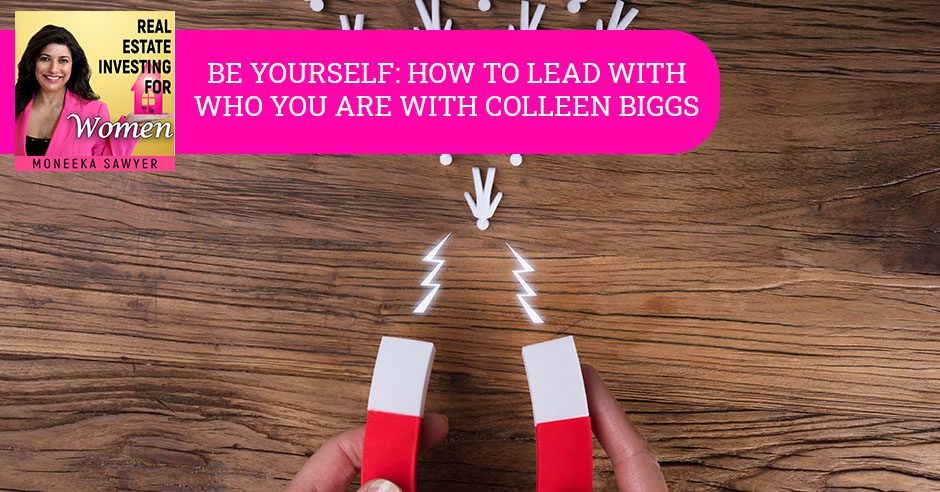
“I’m rubber, you’re glue. Whatever you say bounce off me and sticks to you.” This is a strong famous saying that you would say towards bullies. This saying is in fact true because people who pass judgment on you are really just troubled people too. They project all their hate towards other people. All you need to do is to be yourself and be strong. Women have been labeled by society for too long and they need to work together to destroy those labels. Join your host Moneeka Sawyer and her guest Colleen Biggs as they discuss what it means to be a strong female leader. Colleen is the founder of Lead Up for Women. She believes that life is about thriving and not simply surviving.
Learn how to accept yourself and discover your inner strength.
—
Watch the episode here
Listen to the podcast here
Be Yourself: How To Lead With Who You Are With Colleen Biggs – Real Estate For Women
Real Estate Investing For Women
I am excited to welcome to the show, Colleen Biggs. She strives to reach all women through influence to engage the understanding that in order to have and do anything in life that you desire, you must first show up. She survived in early childhood of chaos, loss and abuse. It was through these trials that she gained the clarity to understand the magnitude of loving others unconditionally and realizing the power of community.
She is an inspiration to others by helping them realize their worth, gain clarity and show up. She believes that life is about thriving and not simply surviving. She has extensive success and experience in Corporate America for over 30 years, coaching over 300 CEOs, franchising, voluntary, national and local community service and numerous project launches.
She has served as a director for her church and organized women’s retreats and local girls camps as well as serves on several advisory boards. She loves the successful business, Lead Up for Women. Lead Up for Women is an elite community of like-minded women driven by passion, power and purpose. She has a weekly podcast and interviews powerful leaders weekly to inspire, educate and motivate on Lead Up for Women: Speak Up to Lead Up. She is an author to the number one bestselling international book, The Anatomy of Accomplishment and publishes a biweekly magazine. Colleen, welcome to the show.
Moneeka, how are you?
I’m great. It’s nice to see you.
There is and there will only be one you. How you pioneer your future is up to you. Share on XIt’s very interesting when someone reads your bio because you get to hear about all your accomplishments, but then you think back like, “Yeah.” I’ve modified my bio and I’ve done all these other amazing things since then. It’s amazing to me when we listen to someone read back what our accomplishments have been and who we are.
I feel the same way. It feels like every week. There’s something new that I would have changed or added or adjusted, but it’s also fun to see where we’ve been and where we’ve come to. It’s totally awesome. Talk to me a little bit about why this topic is so important to you.
The topic for showing up for women really leaning into who they’re meant to be is huge to me because I have seen many women for so long, including myself hide behind these shields or in these cloaks that we put on. The problem is they’re heavy. Picture yourself in this shield or a cloak, and we lock ourselves in what we would call a cage of our disbeliefs of who we think we are based on the labels that we’ve allowed others to place on us. What we haven’t realized is a handle has been on the inside the entire time, and it takes our power to turn the handle and to walk out. For me, I struggled in Corporate America because I was a very dominant personality.
I’m a very atypical personality, but I love other people and I want to help other people. Even to my own detriment sometimes, and I couldn’t deal with some of the females as I was climbing the corporate ladder that didn’t feel that way. It was all about competition and judgment. I realized that if women are going to get ahead, we want to power through, create these paths and trailblaze for women that are coming behind us, and we want to be with the women of history that make change, we must band together and help each other show up.

Be Yourself: It is your responsibility to be a leader in our families, communities, and our careers. If you’re not leading, then who’s leading?
What would you say all about this showing-up thing that you would want to share with women that we could make all the difference for them?
There’s only one you. There will only ever be one you. How you pioneer your future is up to you. No one is coming to give you permission to be who it is that you want to be, and we all know who that is inside. We all know who we were meant to be and who we love to be. I say hang out with your most favorite girlfriend that makes you feel like the best you’ve ever felt.
The one that you can always be yourself around and figure out what is it about that moment that makes you feel free. Why are you holding back in the other areas of your life and not bringing her forward? Women already control the global economy. We have so much power, and I won’t even get into how much power we have over men because my husband looks at me and says, “Women have so much power over men. It’s ridiculous.”
We all know why we have so much power over men, but we just need to believe in ourselves. By women showing up, she’s raising the next generation. If she’s not giving herself permission to authentically show up as herself, she’s not giving that gift to her children to authentically show up as themselves. That’s going to be a domino effect if we’re not working on the women now to helping them show up and shine their lights bright.
You said something that was like, “We’ve got this door in our way, but the handle is on the inside.” I love this imagery of, “I can walk through, I can bring my children through, and I can bring my other women friends through.” We each have the power to open the door for ourselves, also aid those around us that we care about to open the door for and lead them through because there are no closed doors. Figuratively and for the most part, literally, there aren’t closed doors. We do have a path through if we are willing to show up.
I believe it is our responsibility to be a leader in our families, communities, businesses and careers. If we’re not leading, then who’s leading?
We’ve talked about this on this show a lot that there are a lot of women that don’t feel like they’re leaders. We all have different personalities, and some of us are very definitive leadership types. Some of us are much happier being in the backseat or the passenger seat. That’s just the personalities that we have. The truth is no matter where you show up socially or where you’re most comfortable, you are the leader of your life.
You determine if you walk through that door, when you wake up in the morning and when you go to bed, and all of these things. If you think you’re not a leader, it’s not true because you do lead yourself. I don’t want to be over-generalizing here, but women do lead in our families and in our communities. That’s a place where we shine. It’s a place where we naturally are drawn to, and it’s a place where we’re looked to for leadership. Just that idea of being the leader, leadership can show up in a lot of different ways but being the leader that you are meant to be is important. Don’t you agree?
Hang out with your most favorite friend that makes you feel like the best you've ever felt to bring out your best. Share on XAgreed. I met a woman named Tammy in a leadership class I was in, in my community. The first thing she said was, “I’m not a leader.” She didn’t have a job, so she didn’t think she was a leader in her family because she didn’t work in the workforce. We were all like, “What?” She has become this amazing leader in our community. She’s leading her family. She’s helping lead classrooms volunteering. She didn’t understand the definition of what it was to be a leader, so she automatically assumed she wasn’t. You’re right, we lead our own lives and we need to understand how we do that without asking for anyone else’s permission because it’s our life.
Talk to me about a challenge that you’ve been through and what helped you through that?
One of the biggest challenges that I went through was trying to identify where I fit. We all go through this at one point in our life. For me, it came at that point where I became an empty nester, and I had identified as being a mom my entire life. I got married at nineteen. I started having babies at 21. I was a very young mother. I preferred it that way to this day. I still prefer it that way because I have eleven grandkids. I love having this large family and being a very young grandmother, but I identified as a mom.
I had a career. I loved my career, but I didn’t allow my children to pass through me. I allowed them to be me, like identify with me. What that caused was I had this identity as the mother, then when my children grew up and didn’t need me as much, that’s what caused a little bit of the friction because they were off getting all of their friend’s advice and all the other advice, then they grow up and move out. I was super happy when they were growing up and moving out because that’s what I prepared them for, but I do remember sitting on the couch and I looked at my husband and said, “I don’t know who I am anymore.”
It’s because I’m used to being with my kids and taking them places and identifying with my children, and I didn’t know where my place was. I think we all struggle with this. We’re not sure where to show up. I was showing up for my family every day, but we need to remember that we have to show up for us, and I neglected that for a long time. Even though I would run marathons or do things for me, I didn’t know what my favorite color was or my favorite food was. I was eating fish sticks when the kids moved out still. I don’t even like fish sticks.
I’m thinking of all of the things I was doing. I remember my kids when they were younger, I drop them off at daycare, and I would drive the whole way to work listening to Barney. I never even switched it to listen to something I wanted to on the radio, and that’s when you know you’re going that. You’re homie with your kid. Who listens to Barney that long, if anyone can do that from that long ago?
It is crucial because our children watch this more than they listen to us. The more that we’re identifying and sharing that we are an individual, “I am this woman and I’m leading in my family,” they identify that and that will help them as they get older. We need to realize that’s not being selfish. That is about showing up for your children and showing them what a leader you are.
We do model. I think that sometimes, we confuse love with a lack of boundaries. If mom becomes completely identified with me, now we’re the same person. That’s what love looks like. That’s when you take out into the world. It’s instead of I’m my own person with boundaries, a capacity to love, but that capacity to love is filled up by myself because I take good care of myself.
Those are things that a child doesn’t learn unless it’s modeled for them. Then you go out into the real world and you have adult relationships and you’re like, “I wasn’t trained in this. Love looked like this to me.” I love what you’re talking about. It is funny. We think we’re taking care of ourselves. We’re working out, we’re going and getting our spa treatments, or we’re doing our stuff. It’s not all about that stuff, although that’s fantastic and please don’t stop doing it, but who I am is the biggest key to creating that ability to show up fully.

Be Yourself: As a woman, you need to believe that whenever anyone has judgment towards you, it has nothing to do with you. It’s their own self-reflection and it bounces off of you and sticks right back on them.
The one thing that Tammy, my friend, that I said did the best thing for herself was to be part of that leadership class. It brought her the opportunities to be a leader in the community to meet other people to get more involved. That was something that she did to develop her own skills.
Tell us some advice that you got as a younger woman that you wish you had gotten and had to learn the hard way.
You talked about it a little bit in my bio. I had a pretty chaotic childhood. I didn’t get a lot of good advice. I remember my parents once said to me, and maybe you would remember this. I don’t know if your parents shared this with you. Do you remember kids at schools saying, “I’m rubber, you’re glue. Whatever you say bounces off and the mean sticks back on you?” We would use that for bullies on recess for us to say, “Whatever you’re name-calling me, it doesn’t stick on me. It goes back to you.”
As I got older and I started doing a lot of self-development studies, I realized how true that was, that as women, we need to believe that whenever anyone has judgment toward us as anything to us, it has nothing to do with us. It never had and it never will. It’s all their own self-reflection. It bounces off of us and sticks right back on them, but yet we allow it to stick on us. We walk around with labels of what we think other people think about us forever, and it just breaks you down. When in truth, that person is struggling with something going on with themselves and they’re projecting that to you.
One thing you can remember walking around that, “I’m rubber, you’re glue,” whatever you say. Whenever anyone says anything bad, you’ve got a review on your book or review on anything online, if someone shouts out a cannon because there’s a lot of keyboard warriors out there, they’re so brave. There’s no need to shoot back at them. Be the humble and the graceful one. When you notice that what they’re saying is about them, you look at the situation with a different heart and a different perspective. Now you feel full of emotion and love for that person versus feeling like they attacked me because that’s how they feel about themselves. It’s very interesting.
When someone says something about us, they’re reflecting what’s going on for them. It’s also true for us. When we are consistently saying something about other people, other things, or the way our life is working, that’s reflecting what’s going on inside of us. It’s as if our life is a movie of what’s happening inside of our mind and our body. Yes, allow people to just be themselves and not take it personally. How easy that is to say and hard it is to do, so I get that. Also, because then it releases you from the responsibility of what they’re putting on you.
The other piece is if you start to consistently see patterns in yourself. For instance, I might go through a period, and this happened as I was early in menopause. I was very irritated with rude people. There was something that was coming out of my mouth a lot, “Why was that person so rude? I can’t believe that person was rude.” I’m like, “I’m practicing my bliss practices, but they were rude.” Once I had said it 3, 4 or 5 times in the same day, I noticed, “I think everybody is rude. Maybe I’m being rude,” and so I’m like, “That’s not the person that I want to be.” It goes both ways.
You have to take responsibility for all of those things that you’re projecting on to other people too, and it’s not that you have to. It’s that you get to because then you get to be a person that’s happier. You get to see what’s going on for you and what may not be working. If you’re always saying, “That person was so great. I got such great service.” You’re walking around and everything you say is lovely. It doesn’t necessarily mean that you’re naive. It means that what’s going on inside of you is all of this joy. I think that that can go both ways and benefit us in both ways.
Don't allow your children to pass through you. Allow them to be you and identify with you. Share on XWords are very powerful. Women are the worst at this and how we talk for ourselves. We need to be kinder to ourselves, we need to give ourselves grace, and we need to talk very sweet to ourselves. I do an exercise at one of my retreats where I have them write down everything that they hate about themselves. It was all the negative stuff, then they don’t know what I am going to do. I have them get up and line up, and then I say, “I want you to tell the person across from you, and you’re going to say you are, and you’re going to go through your list of every single thing.” They start crying because they would never talk that way to another person.
One of them, the first thing she said was, “You are fat.” She was like, “I’m so sorry,” and she started crying. That’s how horrible we talk to ourselves. We need to recognize that because that right there has a lot to do with how we don’t show up, how we do show up, or how we don’t give ourselves permission. We need to be kinder to ourselves.
In EXTRA, we got more, ladies. Colleen and I are going to be talking about what she does to juggle her work and family life. I know through COVID, this has been such a big issue as we’re moving out of it. It continues to be, and it’s always been an issue for women. This has never been an issue, but we’ve seen a lot of evolution also in how we look at ourselves around this.
It’s always great to have some tools to do that. She brought this up and I thought, “We haven’t had someone talk about this in-depth.” We’re going to be talking about that in EXTRA. I’m excited about that. Colleen, before we move onto our three rapid-fire questions, could you tell everybody how they can reach you?
I made it very easy for everyone so they can never forget. It’s LeadUpForWomen.com. You can find us on @LeadUpforWomen on Facebook and Instagram. I have a Lead Up for Women community that you can join. You can connect with me as @ColleenBiggs on LinkedIn, but we’re everywhere. We’re on YouTube or all over the place. We have videos constantly going, tips and tricks and workshops, and you name it. We’re constantly out there promoting our members, promoting their messages and promoting women.
Tell us about the wonderful gift you’re offering to my ladies.
I love our magazine. We do a bi-monthly magazine, and it’s written by our members for women. They write about business, leadership, lifestyle, philanthropy. Our members write the magazine, and all of the articles are from them. They’re not only giving you practical, tactical tips for you to be able to use and apply, but they’re sharing their heartfelt stories and the struggles that they’ve had through their business or their personal lives, and how they’ve overcome that. It’s very cleansing for them to write these articles.
That is LeadUpForWomen.com/claim-free-magazine.

Be Yourself: The strategy of being wealthy as an investor would be to utilize the line of the money that you’re investing. You should be able to create more wealth, then invest in that wealth to create even more wealth.
On the homepage, you scroll down and you’ll see our magazine, and click Claim My Magazine.
Are you ready for our three rapid-fire questions? Give us one super tip on getting started investing in real estate.
Getting invested in real estate to me is purchasing your first rental home. That would be for me. That’s how it started for us.
What about a strategy in being successful as an investor?
The strategy of being wealthy and being an investor would be to utilize the line of the money that you’re investing to create more wealth, then take that wealth to invest to create more wealth. Not spending it, but taking that line to invest to create more wealth, and that is one of the biggest secrets.
What is one daily strategy you do that you would say contributes to your personal success?
One daily strategy that I do that contributes to my personal success is giving myself an hour of time every morning to sit down and write my gratitude, read, and educate myself no matter what that book is. I take that time for myself, and we need that every morning. That has changed my world for my personal gratitude because if you feel that you’ve already achieved something, then you achieve it. If you can think it, it must exist. That’s just how the world works. Believe it or not.
This has been so much fun. Thank you for all of you.
It’s been my pleasure.
Ladies, thank you for joining Colleen and me for this portion of the show. We are going to be talking about some good yummy stuff in EXTRA, so stay tuned. We’re going to be talking about her strategies on how to balance work and family and live a blissful life. Stay tuned for that in EXTRA. If you’re not subscribed but would like to be, go to RealEstateInvestingForWomenExtra.com. You get seven days for free, so you can check it out. See if you love it. For those of you that are leaving us now, thank you so much for joining us, and I look forward to seeing you next time. Until then, remember, goals without action are just dreams, so get out there, take action and create the life your heart deeply desires. I’ll see you soon. Bye.
Important Links
- Lead Up for Women
- Lead Up for Women: Speak Up to Lead Up – Colleen Biggs’ Podcast
- The Anatomy of Accomplishment
- @LeadUpforWomen – Facebook
- Instagram – Lead Up For Women
- @ColleenBiggs – LinkedIn
- YouTube – Lead Up For Women
- LeadUpForWomen.com/claim-free-magazine
- RealEstateInvestingForWomenExtra.com
About Colleen Biggs
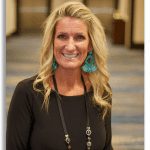
Colleen Biggs strives to reach all women through influence to encourage the understanding that in order to be, have, and do anything in life that you desire, you must first Show UP!
Colleen survived an early childhood of chaos, loss, and abuse. It was through these trials that she gained the clarity to understand the magnitude of loving others unconditionally and realizing the power of community. She has extensive success and experience in Corporate America for over 30 years, coaching over 300 CEO’s, franchising, voluntary national and local community service, and numerous project launches.
She currently has a weekly podcast, Lead Up for Women: Speak Up to Lead Up, is an author to the #1 Best Selling International Book: The Anatomy of Accomplishment, published two additional Journals in 2020 and publishes a bi-monthly magazine.
______________________________________
To listen to the EXTRA portion of this show go to RealEstateInvestingForWomenExtra.com
To see this program in video:
Search on Roku for Real Estate Investing 4 Women or go to this link: https://blissfulinvestor.com/biroku
On YouTube go to Real Estate Investing for Women
Moneeka Sawyer is often described as one of the most blissful people you will ever meet. She has been investing in Real Estate for over 20 years, so has been through all the different cycles of the market. Still, she has turned $10,000 into over $5,000,000, working only 5-10 hours per MONTH with very little stress.
While building her multi-million dollar business, she has traveled to over 55 countries, dances every single day, supports causes that are important to her, and spends lots of time with her husband of over 20 years.
She is the international best-selling author of the multiple award-winning books “Choose Bliss: The Power and Practice of Joy and Contentment” and “Real Estate Investing for Women: Expert Conversations to Increase Wealth and Happiness the Blissful Way.”
Moneeka has been featured on stages including Carnegie Hall and Nasdaq, radio, podcasts such as Achieve Your Goals with Hal Elrod, and TV stations including ABC, CBS, FOX, and the CW, impacting over 150 million people.
Investing In Self-Storage To Generate Passive Income With Stacy Rowles-Rossetti – Real Estate For Women
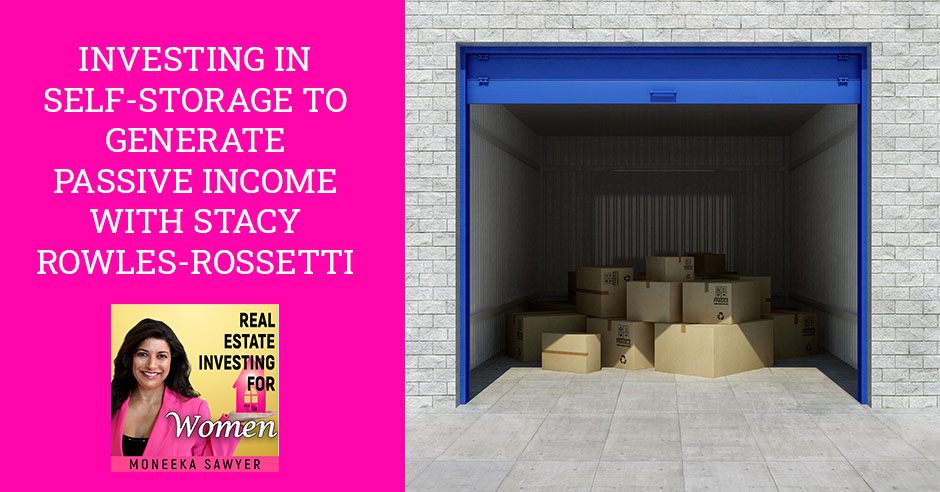
Nothing smells of passive income better than investing in self-storage units. This isn’t your everyday job where you’ll wake up at 6:00 in the morning and manage your facilities. This can be done remotely, anywhere in the world. Get into self-storage with your host, Moneeka Sawyer and her guest Stacy Rowles-Rossetti. Stacy is the founder of StorageNerds and REI USA. She teaches people to invest in self-storage so that they can earn passive income. Her mission is affordable financial literacy. Join in the conversation so that you can start investing in self-storage. Do you want more time for yourself or your family? Listen in and learn how to change your lifestyle with self-storage.
—
Watch the episode here
Listen to the podcast here
Investing In Self-Storage To Generate Passive Income With Stacy Rowles-Rossetti – Real Estate For Women
Real Estate Investing For Women
I am so excited to welcome to the show, Stacy Rossetti. She invested in self-storage, teaches people to invest in self-storage and owns StorageNerds and REI USA. Her mission is affordable financial literacy. Stacy, welcome to the show.
Thank you so much for letting me come on. I’m honored.
We’re so excited to have you. We’ve had nobody come on and talk about self-storage so far. I know that this is a hot topic and my ladies are going to love this. Thank you so much.
Anybody that wants to hear about self-storage is a friend of mine. That’s why I call myself a storage nerd.
Stacy, tell us your story. How did you get into self-storage and why?
I’ve been investing in real estate since 2010. When I first got started investing in real estate, I was wholesaling and rehabbing, if anybody knows what that is. What happened is in 2015, I got pregnant. What had happened for the first five years, all I wanted to do was rehabs. I was one of those crazy people that did like fifteen rehabs at a time. I was really crazy. I was like running around like a crazy person, stressed out. I got pregnant and then, of course, as a woman and as a mother-to-be, I started thinking to myself, “How am I going to take care of fifteen rehabs at the same time, take care of this little tiny baby? There’s no way at all.”
I was already working 100 hours a week. I basically told my husband I was like, “That’s it. We’re done with rehabbing.” He was like, “Okay. What are we doing?” I said, “I don’t know. We’re doing something that has to do with passive income.” I wanted to focus on passive income and up to that very point, I had not focused on passive income at all.
Essentially, I was always about like, “Let’s just get this rehab done and get to the next rehab.” When I got pregnant, I talked to my realtor and I have a realtor that I’ve had for years, the same one. I was like, “Can you get out there and start looking for passive income for me?” He was like, “What do you want to look for?” I was like, “I don’t know, whatever.”
Self-storage is a lifestyle investment. Share on XWe looked at portfolios of houses. I was like, “Maybe we could roll this money over into a portfolio of 10 or 20 houses.” We looked at multifamily. This is back in the day. Remember when nobody multifamily wanted to buy multifamily? Everybody was focusing on rehabbing and that’s it. All the multifamily deals that I looked at, they needed huge rehabs. At that point, I was like, “I’m done with rehabbing. I can’t do it, because there’s no way because I have to take care of this baby.”
What happened is my realtor was like, “What about storage?” I said, “What about storage?” He said, “There’s a facility at 15, 20 minutes from your house. Would you be interested in that?” I was like, “Yeah, possibly.” As I drove up to this facility, I already knew I was going to buy it. The reason why is when I drove up to this facility on the left side, it’s like an industrial area.
It was very run down. For me, anything run down doesn’t scare me because I’m a rehabber. I drove up to this facility and on the left side near where the keypad was to get into the gate, there was a huge pile of tires that had been sitting there for years and years. I had already known. I was like, “This is going to be a good one.”
Anything that’s ugly and scary looks like money to me. That’s what happened. I called my realtor and I was like, “Let’s meet the owner. I want to figure out what’s going on with this thing.” It had been sitting on the market for five years and nobody wanted to buy it. We can get into why, if you want to do that.
I knew when I drove up to that thing that it was just so dumpy and ugly looking, but I could tell that it was going to be a good deal if I could get that at the right price. I instantly fell in love with storage and been focused on storage ever since. That’s basically my story is that I got pregnant and then all I cared about was figuring out how to make passive income so I could stay home with my daughter. That was it.
I got two questions for you. First of all, why was it sitting on there for five years?
This is back in the day when property used to sit on the market for five years and nobody would buy it. 2015 was still coming in the upswing. You would have a property that was sitting on there forever. One of the main reasons why, so the name of the storage facility was Big John’s Storage. I told my realtor, I was like, “I want to meet Big John.” He was like, “All right, let’s go meet Big John.” I went over there. I already knew it was going to be a good deal, so guess what I did? I invited my lender. I invited my husband and then my realtor and then me. We all went over and met Big John. John was his name.
John was a little tiny old man, like 88 years old. I was like, “Why are you called Big John?” He’s like, “Back in the day, I used to be called Big John.” He was ready to retire. His wife wanted to move to Florida and been complaining about it for years, but nobody would buy this facility. He had to sell it first so that he could take that money and go to Florida.
We started walking around the facility and as we were walking around, essentially the way this facility looks, it’s a long skinny facility made out of metal, like a metal storage facility. It had 64 10×10 units. It was on three acres of land. It was a huge piece of property. What he did is parking around it. Remember that there wasn’t an industrial area. He was parking like big rigs and like tow trucks and stuff like this, but he had no rhyme or reason to how he was parking. He was just like, “Go find a parking spot, wherever you can find one.” Parking was all over the place. The place was super dumpy. The tires that you saw in the front of the building also were everywhere else.

Self-Storage Investing: Once you figure out how to automate and systematize your property, it truly becomes passive income. Then you will be able to manage it from anywhere in the world.
In fact, in the end, there were thousands of tires that we found once we bought the place. We walked to around and what my husband and I did is we tried to figure out how much money we could make on that thing. What we did is we talked to John and he gave us the story that he built it in 1980. For the first twenty years, it was awesome, and then the last ten years or so, he didn’t want anything to do with it. He ran it into the ground. This is very typical. This is what we call a mismanaged facility, so it’s very typical, and I only buy mismanaged facilities. The reason why is because I’m a rehabber at heart and I want to buy ugly properties and fix them up.
We walked around and we both counted. We figured out that we could probably have about 60 parking spaces in that area, and then we would have the 64 10×10 units. We asked John, I said, “How much money are you making?” He said, “I’m probably making around maybe $2,200, $2,300 a month.” If you calculate up 64, 10×10 units at like, let’s say $70 a month, and then another 60 units of parking at $70 a month, you come up to almost $8,000, $9,000, $10,000 a month. He was only making $2,000, $2,300 or whatever he said. Anytime they ever tell you a number, it’s always the wrong number.
I was like, “John, why are you only making $2,000 a month when you could be making like $10,000 a month?” He’s like, “I’m just tired of this thing.” He’s like, “It’s paid off. I’m making $2,000, whatever.” We basically got into, I said, “I want to buy this place.” I said, “I’m not buying it for $500,000.” He had it listed for $500,000.
If it was full 100%. It could have been worth $500,000 plus if he was actually having customers paying and stuff because the thing with commercial real estate, it’s all income-based. Essentially, if you say, “It makes $5,000 a month,” it’s valued at this much money. He was making $2,000, so he was making like $2,400 or whatever. He made $25,000 a year. It’s only valued at like $200,000, $250,000. That’s it.
That’s when I told him, I was like, “Nobody’s going to buy thing, John, because first of all, it’s a dump. Second of all, you’re not making enough money to value it at $500,000. It’s valued at $200,000,” so my offer is $200,000. He was like, “No. I’m never going to sell it at $200,000.” I said, “Okay. Just think about it. Actually, my lender is right here. He’s going to lend the money to me.” I said, “Rick, is it okay? Do you want to buy this?” He said, “Yeah, let’s buy this.” I said, “I offer $200,000.” He was like, “No. I’m not doing it.” “That’s okay. Just think about it. Let me know.” The next day he called back and he said he would do $250,000.
We picked that thing up for $250,000 and it took us a good couple of years to figure out what we’re doing with that. It was our very first facility, but we fell in love with storage. It’s really given us the life that we want now. We’re buying our 10th facility right now. That thing is making almost $100,000 a year. We got an offer of $950,000 on that facility.
How long have you owned it?
Five years in July 2021. Isn’t that crazy? That’s why I love mismanaged facilities and it took us a good year and a half to figure out what we are doing to get into how to automate and systematize everything. We bought four this year already, and we’re on track to buy ten for the year. Once you figure it out automated and systematize it, it’s like doing wholesale deals or rehab deals. You get into making it truly passive income. When you can make it truly passive income, then you should be able to manage it from anywhere in the world and that’s what we are focused on now.
Anything that looks ugly and scary can be made into money. Share on XHow much time do you spend to manage those properties?
We’re buying our 10th one now. We’re completely vertically integrated. We have 1,000 doors, essentially. We have my husband who manages the facilities and then we have our office manager, who’s the operations manager and does all the phone calls and things like this. We have like a boots-on-the-ground person to go around and overlock people and clean up the trash and all that stuff.
That’s it. There are three people to manage all that, and the two of them, the office manager and the boots on the ground person, can really do most of the work. Eighty percent of the work is done by both of them. My husband does the high-level stuff. He does the QuickBooks and the numbers and that stuff is what he does.
That’s the one thing I love about self-storage as well too. Everything that you hear about self-storage, it doesn’t take a lot of time. It doesn’t take a lot of effort. It really truly is like that, unless you become a mismanaged facility. All of the facilities that I’ve bought, essentially, the owners get up every day and go to their office and sit in their office and run their facilities.
For me, that’s a waste of time and money. I was like, “Why not automate that?” We’re completely electronic, completely virtual. Essentially, they just go online, book themselves, get their code, go in and do their thing. In fact, we haven’t even met any tenants in years. The first one that we bought, the very first one from Big John, that one, we were out trying to figure out what to do and meeting tenants and try to figure out how to automate and systematize everything.
By the second one, we were like, “We’re not going out to meet anybody. We’ve got to figure out how to make this electronic.” When COVID happened, we were already virtual electronic contact list. We didn’t have any issues at all. All the ones that get up every day and go and have the tenant sign a contract and stuff like this, those are the ones that were hurting. We didn’t have any issues at all.
Do you have any issues with people stopping paying and abandoning their unit or any of that stuff and what do you do?
The way it works is like, just think of the 80/20 rule. Eighty percent are going to pay on time, 20% are not going to pay on time. You put in rules. If you don’t pay by this day, you get a charge. If you don’t pay by this day, you get overlock. If you don’t pay by this day, you go to the auction process. You implement all these rules.
Most of the time, by the time the auction process comes up, we have very few. In fact, we haven’t even had any auctions because everybody’s paying, but there are those people that they get to the auction and then you’re like, “Come on, you better pay now. Otherwise, we’re going to do it.” There is that, and our office manager handles all of that.
How did you find your office manager and your boots on the ground person?
Just on Craigslist.
All of your units are in one location. You’ve got one boots on the ground person that manages all your units.
We’re only in Georgia, but we’re all over. We’re Southern Georgia. We’re all over Southern Georgia, but maybe within 30 minutes to 1 hour from each other, so he rides around and manages all of that is what he does.
Define mismanaged facility. Why don’t you define that and the definition between the two, mismanaged and income-producing?
Those are the two most popular types of facilities. Mismanaged is exactly what I said. They’re like 50% full or less. The owners are maybe only taking cash. They don’t have their books. Big John, when I asked him for his books, he opened up his drawer and pulled out his ledger. I have a student right now that’s buying a facility that has almost 300 units in it. Just imagine this, that’s 300 units and the owner does not own a computer.

Self-Storage Investing: Self-storage doesn’t take a lot of time. It doesn’t take a lot of effort either unless it becomes a mismanaged facility. Those are 50% full or less.
You find this all the time. Those are considered mismanaged facilities. The thing with mismanaged facilities is that you cannot go to a bank and get a loan for that. In the commercial real estate world, you have to prove income. If you can’t prove income, then the bank’s not going to give you a loan. That’s why you have income-producing properties. Those are really easy to fund and banks love storage facilities because you have very few defaults ever.
An income-producing property, then you could go to a bank and get a loan and you put 20% down and you can just go buy a property. Whereas a mismanaged property, they don’t have proof of income. They don’t have a P&L. They don’t have balance sheets, tax returns, rent rolls or anything like this. You have to find money from some place. Either you have to pay cash for it. You have to partner with somebody, you have to get a private lender to lend you the money, or you can get them to owner finance it to you.
Mismanaged facilities are a little bit harder to fund than income-producing properties. The question that you should be asking yourself is, if you want to get them to self-storage, it’s like, “Where can I come up with the money? Can I come up with a couple of $100,000 or not?” If I can’t come up with myself, if I have to borrow the money to get it, then I should be focusing on income-producing properties.
If somebody, or if I have a couple of $100,000, you could go and find a mismanaged property. What I love about mismanage is that you can double or triple that value within the first two years that you own that thing. That property that we have that we’re selling it now, we got an offer for $950,000. We’ve been full in the first 18 months to 2 years. It only takes a little while to get those up and running.
You did say that with Big John, your lender said that he would lend against it, but basically, he chose the value based on what the income was. Is that true?
Yes.
If you pay cash for it, can you refinance it once you’ve gotten it up to snuff?
Absolutely. That’s exactly what you want to do. Once you get it to where it’s 100% or 90% plus full, then you could just go refinance it out and just get a bank loan on it.
For the bank loans, these are commercial loans, so they’re based completely on the value of the property. They don’t worry too much about personal income. All of your personal information that you would normally give for a single-family home. They do pull credit. Is that true?
They do look at credit, but it’s asset-based lending. That’s why I love commercial real estate. It’s really asset-based lending. That’s what you tell your sellers when you talk to them, it’s like, “You think it’s worth $500,000,” but the truth is, is that there’s no bank that’s going to fund this for $500,000, if you can only prove that you’ve made $2,000.
That’s how you get the sellers to say, “You’re right. I need to either prove that it’s worth $500,000 or I’m going to have to drop the price.” A lot of sellers don’t understand that concept because it’s like on the residential side. They’re like, “It’s worth $350,000,” but it’s really only worth $250,000. You have to be able to prove it and that’s what I love about commercial lending.
Through COVID, we’ve seen that there’s a big outflux from the cities. More people are moving a little bit more to the burbs. Not a little bit more, but quite a lot. I’ve always thought of self-storage as being really good in the city space where there’s not a lot of space. People are in condos or apartments, and so they need this self-storage because they don’t have a garage or they don’t have their own little storage in their backyard. Now, as people are moving out more into the burbs or have done that, have you noticed any changes in how your self-storage units are doing?
Every storage facility that we own is either in a secondary or tertiary market. There are three different markets, primary, secondary and tertiary. Primary would be in the city. Those cap rates of those facilities are super low, and then you have tertiary markets where it’s a mid-range cap rate. Those are burbs. Then you have tertiary, which is like country.
Storage is based off of migratory patterns and everybody is moving out. Especially huge, big storage facilities, companies like U-Haul and Public Storage, they’re looking at the migration of people and trying to figure out where are the trends. Where is everybody moving to? What cities are they moving to? What plays a key role in learning to invest in self-storage is number one, the population of cities.
Is it declining or is it growing? Is there a growth market or declining? You want to pay attention to that. If it’s declining, then it may not be a good area. Also, what you want to look at is you want to look at total square footage of a radius of maybe 3 to 5 miles, depending on if it’s a primary, secondary or tertiary market.
In life, everything follows the 80-20 rule. Share on XIf you wanted to go and buy a facility in a tertiary market, out in a city that has 15,000 people or 10,000 people, essentially, what you would do is like, “Within this five-mile radius, how many storage facilities are there?” You would take the total square footage of that and you would divide it by the population of that area as well too, and your number should be between 6 and 8 or something like this.
If the number is 6 and 8, then it’s a thumbs up, but if it’s on the outskirts of that, and it’s probably not a good deal. When you’re looking at investing in self-storage, you want to look at the population of a town, population of the area, total storage square footage, competitors, and look at the market and see if it’s a good deal or not.
We pretty much own most of our facilities in tertiary markets. Some of them are in secondary but most are tertiary. We’re 100% full in every single one. We bought one in January that was a mismanaged property in a small town in Georgia. It was like 50,000. It’s not super big, like 50,000 people. That one, he said it was full, but it was really just full of people’s crap and nobody was paying.
That one, we’re still trying to lease-up, but other than that, all the other ones that we have, they’re all 100% full. I have one that’s in a town of 300 people. It has 60 units and it’s 100% full. The need for storage is so great right now that even if you wanted to build, which is another way to get into self-storage investing, I highly recommend it. The material prices are a little bit higher, but that’s not going to last forever. We’re thinking about building as well too. We’re definitely going to be building.
Obviously, it’s within your space. Can people do this virtually?
What I tell all my students is, “If you are going to get into self-storage investing, you need to be making this truly passive income.” There’s no reason for you to be getting up every day and going and managing your facility. That would be considered a job, not an investment, so you want to make it passive income and you want to build passive wealth, and self-storage investing is exactly the way you can do that.
We travel 6 to 8 months out of the year and we’ll be traveling the entire year. We just bought an RV and we’re going to be traveling. We’re gearing up to be able to do that and try to figure out how we can do that. I want to prove to my students that you should be able to manage your facilities from anywhere in the world.
During COVID, when everybody was freaking out and staying home and hiding, essentially, what we did is just hit the road. We went to almost every state. We visited every state. We did sixteen national parks in sixteen weeks. We went to Florida and hung out there for a month. We went up to Maine and hung out there for two months.
You can manage and all of our facilities are in Georgia. We weren’t even in Georgia for eight months out of the year. We weren’t even there. I tell my students, too, it’s like, “It’s probably better for you to buy something that’s further away because then what it does is it makes you automate and systematize that business.” Whereas if we have one facility that’s probably twenty minutes from our house, my husband’s like getting up every day and just going out there and hanging out and doing whatever. All the other ones that we have are way in South Georgia, 4 to 6 hours away. He can’t do anything with those, so he has to let our boots on the ground person manage those. He has to let the operations manager manage those. Whereas the one that we have right around the corner, he always getting up and going over there because it’s just a habit.
Buy stuff that’s a long way away and learn how to automate and systematize it because that truly is passive income when you can do that. I think the best-kept secret in the real estate investing world is self-storage. I honestly really don’t understand why more people don’t invest in self-storage. It’s a lifestyle investment. You can truly make your life the way that you want to with self-storage investing.
I invested in a syndication for a self-storage where they were building a 500-unit facility in Pennsylvania. I invested but I haven’t done it myself. I wanted to get into it. I’ve also done a syndication into a mobile home park. I’m investing into some of these things I’m hearing so much about, but I just don’t know enough about them to look at it as a possible primary investment where I focus my time on it. Ladies, in EXTRA, we’re going to be talking about how to buy your first storage facility in the next 90 days. If you want to do that, at least get more information.
Definitely, we’re going to be talking about that in EXTRA. The other thing is I wanted to say that Stacy, I don’t normally do this, but I’m so delighted by Stacy’s knowledge that we’re talking about this topic, which many of you ladies have asked about. Also, I’m a little bit surprised. Stacy has a self-storage course.
When I’m out there looking at coursework for real estate, it’s huge. $997 is nothing in my book and it sounds like you can do this truly passive. This isn’t something I’ve tried, but you can do this truly passive lifestyle. I feel good about saying you really take a deep look at that because I’m watching Stacy. She’s walking the talk. In other words, when we first got online and we were in the green room and we were talking, she’s like, “I’m on the road,” but she’s got this great backdrop. She’s got this big great backdrop. She’s got this lighting. She’s got her mic, she’s got this whole set up.
Most people who are traveling when they come on the show, they’re crackly. Their backdrop looks terrible, but she’s got the whole setup. This means she’s actually on the road and she’s setting herself up to travel for a year, running this business. If that’s true, then it is really passive income and she’s proving it. To me, that says quite a lot on so many levels. I’d encourage you to connect with her. Her course is $997, but she does also have some freebies for us. Why don’t you talk to us a little bit about that?

Self-Storage Investing: When you’re looking at investing in self-storage, you want to look at the population of the town. You need to look at every detail to really understand the market and see if it’s a good deal or not.
If you’re interested, we’ll give you a link to go and get what’s called Stacy’s Six Step System to Storage. It’s a template. It’s like an eBook. It will take you step by step on the way that I teach, and which is I teach in departments. If you think of your self-storage investing world, and it’s like you have six different departments.
That is your office admin, setting up your office. Doing your marketing, getting your acquisition stuff done, getting the financing, managing the facilities and then possibly liquidating them. I go through each of those departments in the Six-Step System. It’ll take you step by step and it’s a process. You can get that for free with the link that we give you.
We’re still figuring out that. If you don’t know where to go, go to BlissfulInvestor.com/stacy. The reason it’s really important is I know a lot of you connect with my guests and then you just go directly through their link, which is fine. What happens is then I don’t know that you were interested in that topic or that person.
If you use the links that I post, then I know you’re interested in this topic, you want to hear more. You’re interested in that person, so maybe I bring her on more or we do some partnership, which then gets you better deals, but it’s great for tracking to figure out what you ladies want. You know I’m all about serving you.
I’ve talked to so many of you like, “I signed up with that person,” and I was like, “Did you use my link?” They’re like, “I’m so sorry.” It’s about taking care of you ladies. Whenever you go to any of my guests, go take a look at the blog post on BlissfulInvestor.com. If you sign up for their program or you get a free gift, use the link that I put in there so that we’ve got some tracking. It’s not like I’m going to come back to you with any, I know some people are like, “I don’t want to be tracked.”
This is simply marketing numbers so that I understand what it is you’re wanting from me. I’m not just covering topics that you’re not interested in. Sorry for that big thing, but I’ve been hearing a lot of ladies lately where they’re like, “I didn’t use your link,” but then I just don’t know what you’re wanting. Please go to BlissfulInvestor.com/Stacy. Look up Stacy’s blog with the title where we’re talking about self-storage and use that link so we can track it. Did you have anything else you wanted to add, Stacy, before we move into our three rapid-fire questions?
I know we covered it all, but you did talk a little bit about lending and I wanted to just reiterate that as well too. You really want to get into self-storage. The truth of the matter is, is that if you’re super busy and you got other things that you’re working on, there’s nothing wrong with lending out just like you did.
The truth of the matter is, is you’re making money and you’re not doing anything right now just by lending that out. I always tell my students like, “Even if you can’t get in there, you don’t think that you can own a facility and manage it, because it’s just too much time of work.” Land. Get into a syndication or get into a fund or find somebody and partner, and you’d be the lender, and then that way you can still do it as well too.
It is a good way to test the waters and different asset classes to see what it is that you like, how does it work out? Someone else has the knowledge and is taking all the risks. Thank you for that. I have three rapid-fire questions for you. Are you ready?
I’m ready.
Stacy, give us one super tip on getting started investing in real estate.
Getting started in investing in real estate, I would say honestly, is like, “Just don’t be afraid to just take action and focus on marketing.” People do not market enough, especially in real estate, to find deals. If you’re not finding any deals, guess what? It’s because you’re not marketing enough. Take action by marketing and having a whole bunch of strategies for marketing.
What is one strategy for being successful as a real estate investor?
It’s the same thing. Take action. A lot of people don’t. You have to keep moving forward because guess what? In the real estate investing world, everything is 11th hour. It’s so annoying. I wish I had a deal that closed and it was just like easy peasy, lemon squeezy, but it’s not. We’re closing on a storage facility now that we are supposed to close. There are title issues and it’s so frustrating. You’ve got to keep moving forward because it’s just how it is in this industry.
What is one daily practice that you would say contributes to your personal success?
I’m a walker, so I’m exercising. My personal success is that I’m a busy person. I need a lot of energy because of all the stuff I do. I do the 12-3-30. It’s like when you get on a treadmill. It’s a twelve incline of twelve and like a pace of three miles per hour for 30 minutes. I do that 5 or 6 days a week, at least, and it gets me pumped up. I feel so much better mentally after I do my walk. Sometimes when I’m having a hard day, I’ll take a walk and it’s only 30 minutes of walking. I’m sweating to death. If anybody’s interested, check out the 12-3-30. It’s a great exercise.
This has been amazing, Stacy. You have me so intrigued. Thank you for everything you shared on this portion of the show.
I appreciate it. Thank you so much for me to hang out with you.
We had fun and I am so excited about the EXTRA, where we’re going to talk about how to get your first facility in 90 days. Ladies, if you are subscribed to EXTRA, please stay tuned. If you’re not, this may be the time to get subscribed. Go to RealEstateInvestingForWomenExtra.com, and you get the first seven days for free. You can get this one for free.
Take a look at the membership, and if you love it, that’s great, and if you don’t, you’ve just got some great content. Go to RealEstateInvestingForWomenExtra.com. For those of you that are leaving Stacy and I now, thank you so much for joining us for this portion of the show. I look forward to seeing you next time, and until then, remember, goals without action are just dreams. Get out there, take action and create the life your heart deeply desires. I’ll see you next time.
Important Links
- Blissfulinvestor.com/Stacy
- StorageNerds
- REI USA
- Stacy’s Six Step System to Storage
- RealEstateInvestingForWomenExtra.com
About Stacy Rowles-Rossetti
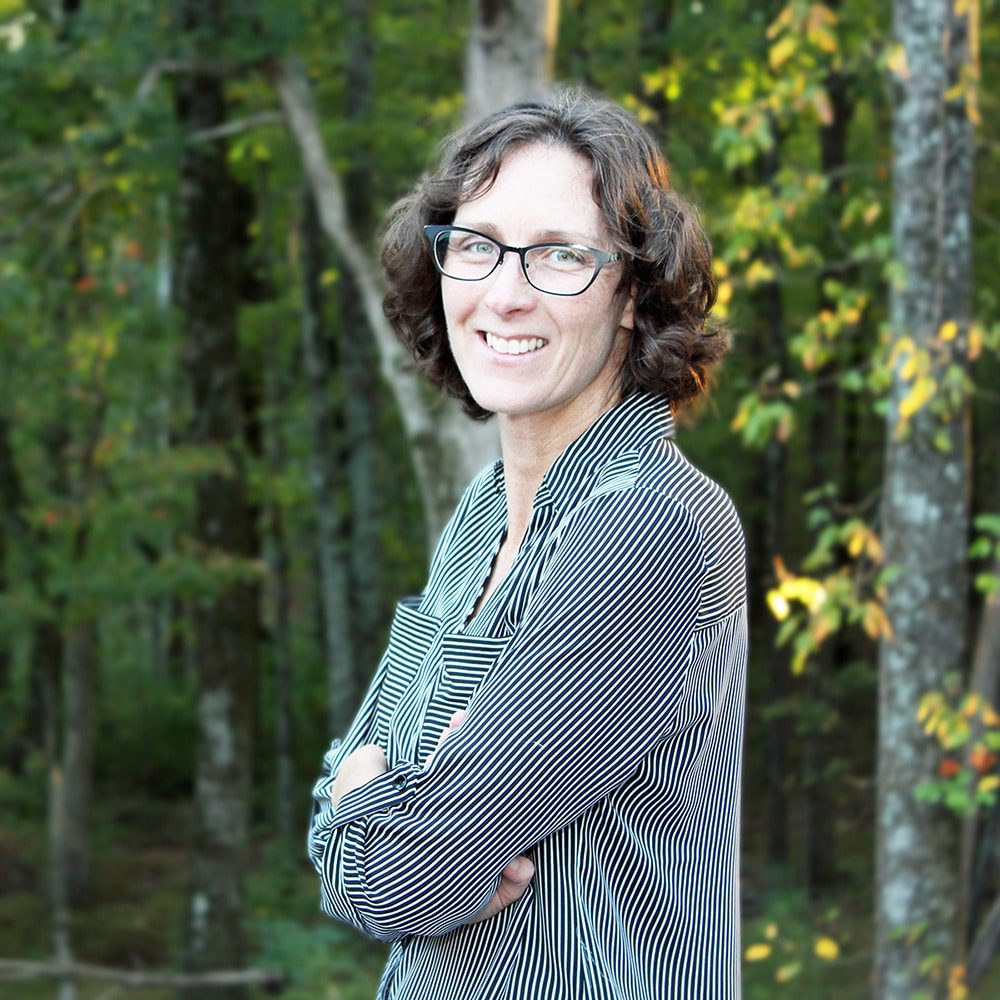 As a real estate investing expert and coach, I have built my name on the results I have created – for myself and for my students.
As a real estate investing expert and coach, I have built my name on the results I have created – for myself and for my students.
Investing in real estate has changed my life, opening doors for me and my family and affording me an outlet for all my creative and entrepreneurial energy. Through scaling up a renovation company in Atlanta with hundreds of transactions to learning to invest passively through creative financing deals and storage facilities, I have not only overcome many trials and tribulations, but systematized and organized my days so that I can run several successful businesses.
Day after day, I work hard at what I do, striving to stay ahead of the curve by building on my knowledge and making shrewd decisions. This did not happen overnight, of course. My early days in real estate were slow, exhausting and hard, but little by little, I earned a sense of what worked and what I needed to do to achieve consistent results. Because I taught myself all this learning through experience and mentors, the process was gradual and required the utmost diligence on my part.
Today, I own and operate REI USA and StorageNerds. REI USA is an online education and networking platform that is exactly the tool that I would have wanted when I was getting my start, something that aspiring and established investors can turn to, a means to cutting your learning curve dramatically.
______________________________________
To listen to the EXTRA portion of this show go to RealEstateInvestingForWomenExtra.com
To see this program in video:
Search on Roku for Real Estate Investing 4 Women or go to this link: https://blissfulinvestor.com/biroku
On YouTube go to Real Estate Investing for Women
Moneeka Sawyer is often described as one of the most blissful people you will ever meet. She has been investing in Real Estate for over 20 years, so has been through all the different cycles of the market. Still, she has turned $10,000 into over $5,000,000, working only 5-10 hours per MONTH with very little stress.
While building her multi-million dollar business, she has traveled to over 55 countries, dances every single day, supports causes that are important to her, and spends lots of time with her husband of over 20 years.
She is the international best-selling author of the multiple award-winning books “Choose Bliss: The Power and Practice of Joy and Contentment” and “Real Estate Investing for Women: Expert Conversations to Increase Wealth and Happiness the Blissful Way.”
Moneeka has been featured on stages including Carnegie Hall and Nasdaq, radio, podcasts such as Achieve Your Goals with Hal Elrod, and TV stations including ABC, CBS, FOX, and the CW, impacting over 150 million people.

